|
For American purposes, the best definition of "frontier" is the westward-moving zone of conflict between Indian life and encroaching white settlement. Though gunfights and broken treaties are best remembered, life on the frontier also involved now hard-to-conceive cultural role reversals. White men sometimes dressed like Natives and Indians sometimes dressed like white men. There were Christian Indians and white-skinned Indian warriors. Time, disinterest and fear of political incorrectness have erased most vestiges of Indian influence from mainstream American life, but those influences and interactions were once quite strong and sometimes had tragic consequences. Here, with all of its political incorrectness preserved, are the "reminiscences of a Western traveler" published in the Southern Literary Messenger. Though published anonymously, the author is believed to be Nathaniel Beverley Tucker, a Virginia aristocrat and literary light of the antebellum South who collaborated with Edgar Allen Poe. Tucker lived in the west for a time before returning to Virginia. From the Reminiscences of a Western Traveler
The speaker was a tall, handsome man, uncommonly stout, with an appearance of great strength, perfect health, and a quiet good humor, which disposed him to be communicative, merely by way of obliging. Though by no means garrulous, I had discovered that he was ready to tell whatever another might be desirous of hearing. He spoke with that strong accent, and deliberate tone, which characterize the Scotch Irish race, and which always, to my ear, conveys a promise that what is said will be said distinctly and clearly. Here then was the very man I wanted. I had left the peaceful scenes of the Atlantic coast, expecting, not indeed to "roam through anters vast and deserts wild," in my western tour, (for my maps and gazetteer had taught me better,) but to find some traces of the scenes, which but a few years before, had made it dangerous for a white man to set his foot where we now rode along securely. My eye had eagerly scanned every object which afforded promise of food to my young and eager imagination; but as yet I had found none. The soft beauty and exuberant fertility of the country, need only the touch of civilization to take from it every appearance of wildness, and I could hardly bring myself to believe that it had been so lately the haunt of the prowling savage. My enthusiasm was consequently much damped; but it was not extinguished, and these last words of my companion blew it into a flame. A well directed question soon drew him out. "I was born," said he, "among the mountains of Virginia. I never saw my father. He was killed at the battle of Point Pleasant, just before I came into the world. That is the reason why I said that Indian fighting had to do with me before I was born. But that was not all; many years before that, the Indians made a break on our settlement, and carried off my oldest brother, and kept him." "Did you never see him again?" "I suppose I have, but I did not know it at the time." As he said this, a gloom came over his countenance, which checked my inquisitiveness, and he rode on, perhaps a mile, in moody silence. At length his brow cleared, and he again spoke, but in a somewhat saddened tone. "It is something strange; I am not superstitious, and yet it seems to me, as if at times, when people are in great distress of mind, they are apt to say things that turn out almost like a prophecy. It was a great grief to my mother, the loss of her child, and the longer she lived the more she mourned after him. He was quite small when they took him; and they carried him away over the lakes, so far, that they never heard where he was, until he was almost grown up, a perfect wild man. My mother was a religious woman; and the thought of his being brought up among savages, where the word of God could never reach him, went to her heart. She said, it was always borne upon her mind that he was not dead, and that he would grow up among those vile wretches, to be the death of his own father, and perhaps to die at last by the hand of one of his own brothers. When they raised a party to follow the Indians, she would go with them, and all the way, she said, she looked and looked, in hopes to see where they had dashed out her poor child's brains against a tree. It was the only comfort she hoped for, and that was denied her. "As I told you, they never heard of him till he was near or quite a man; and that was just before Dunmore's war. There was no chance to do any thing towards getting him home at that time, for it was dangerous to go near the Ohio. Indeed, all they knew was, that there was a white man of about his age among the Indians, who answered to his name. It was not until after the peace that we knew certainly all about him. "Well! he was at the battle of the Point, fighting among the Shawanees; and there my father was killed. When my mother heard that he had been there, you may be sure her own words came back to her. No body knew who killed my father. But why not he as well as another? Flesh and blood could not have made her believe that it was not he. "Just after that I was born, and then again my mother took it into her head that I had come into the world to revenge my father's death. There was no great comfort in that thought, you may be sure; so as soon as the war was over, they tried all they could to get my brother back. He was told that my father was dead, and had left a good estate; and that he was the heir at law; (for you know that my father died under the old law,) but it all would not do. He was a complete Indian, and had an Indian wife and children that he would not leave. But he had kind feelings for us all, and sent us word to take the estate; for he wanted nothing but his rifle. "Well! my mother died; and I and a brother a little older than me, sold out and went to Kentucky. Where we settled was a dangerous frontier near the Ohio, and the Indians once or twice every year, would come over and strike at us. Then we would raise a party, and follow them away almost to the lakes; and after we got strong enough, we commonly kept a smart company ranging about on that side of the river. Sometimes we volunteered; sometimes we were drafted; sometimes one went; sometimes another. One year my brother went, and had a fight with the Indians. Afterwards we heard that our wild brother was in that fight, and was badly wounded. The next year I went out, and we had a fight, and my poor brother was there again, and he was killed." He ceased speaking, and again sunk into a gloomy silence, which none of us were disposed to interrupt. At length he said, in a softened voice, "Thank God! I was spared one thing. I never think of it, that it does not make the cold chills run over me. It was the night before the battle. We had been following hard upon the trail all day, and just before night we came up with them. But we did not let them see us, and lay back till they had camped for the night. We knew we could find them in the dark by their fires. Sure enough we soon saw the light, and crawled towards it. The word was to attack at day light. In the meantime every man was to keep his eye skinned, and his gun in his hand, and not to fire on any account till the word was given. But in this sort of business every man fights, more or less, on his own hook; and if a fellow only kills an Indian, they never blame him. There they were, all dead asleep, around their fire; and we standing looking at them, almost near enough to hear them snore. You may be sure we did not breathe loud. Well! while I was standing off on one flank, watching them with all my eyes, up gets one, and stands right between me and the light. Up came my rifle to my face. It was against orders, but I never had shot at an Indian, and how could I stand it? My hand was on the trigger, when the figure turned, and I saw the breasts of a woman. You may be sure I did not shoot. It was my brother's daughter, as I afterwards learned." This story required no comment. It admitted of none. The ideas it suggested was such as reason could neither condemn nor justify. We could only muse on it in silence. At length, the other stranger, who, like myself, had listened attentively, said, "I too was once within an ace of shooting a woman." I started at this, and turned to reconsider the speaker. I had already scrutinized him pretty closely, and had formed a judgment concerning him, which these words quite unsettled. The idea that he had been familiar with scenes, where every man must make his hand guard his head, had never entered my mind. He was indeed formidably armed, carrying a brace of pistols in his belt, and another in his holsters. The handle of a dirk peeped through the ruffle of his shirt, and a rifle on his shoulder completed his armament. I had been of course struck with an equipment so warlike, but attributed it to excess of caution. The mildness and elegance of his manners had fixed him in my mind, as one bred up in the scenes of peaceful and polished life, where, in youth, he had heard so much of the perils of the country he was now traversing, as to suppose it unsafe to visit it without this load of weapons. I certainly had never seen a man of more courteous and gentlemanlike demeanor; and though his countenance gave no token of one "acquainted with cold fear," I had nevertheless, emphatically marked him as a man of peace. He was the oldest man in company, but deferential to all, accommodating, obliging, and, on all occasions, modestly postponing himself, even to such a boy as I was. He seemed now to have spoken from a wish to divert the painful thoughts of our companion, and, in answer to an inquiring look from me, went on with his story. "It was nearly thirty years ago," said he, "I was travelling from Virginia through the wilderness of Kentucky, then much infested by Indians. I had one companion, an active, spirited young man, and we were both well mounted and well armed. Vigilance alone was necessary to our safety, and as we had both served a regular apprenticeship to Indian warfare, we were not deficient in that. We soon overtook a company of moving families, who had united for safety. The convenience of the axes of the men, in making fires, and of the women in cooking, determined us to join them. We camped together every night; and as we derived great advantage from the association, we tried to requite it by our activity and diligence as scouts and flankers. We commonly rode some distance ahead, so as to give them time to prepare in case of attack; depending on our own diligence and skill to guard against surprise. "Riding thus one day, a mile or two in advance, we were suddenly startled by an outcry from behind, which was not to be mistaken. We immediately drew up, and presently saw our party hurrying towards us, in great confusion and alarm, whipping up their teams, and only stopping long enough to say that they were pursued. The rear was therefore now our post, and, waiting till they had all passed, we dismounted,—hid our horses, took trees, and awaited the enemy. I did not wait long, until I saw the head and shoulders of a figure above the undergrowth, rushing at full speed towards me. My rifle was at my cheek, and a steady aim at the advancing figure made me sure of my mark, when an opening in the brushwood showed me the dress of a female. She was the wife of one of the wretches who had just passed us, completely spent and sinking with fatigue. Had there been Indians she must have perished. As it was, her appearance showed the alarm to be false; so I took her up behind me, and we went quietly on, in pursuit of her dastard husband, to whose protection I restored her." In speaking these last words, the face of the speaker underwent, for a moment, a change, which told more than his story. The tone of scornful irony too, which accompanied the word protection, gave a new face to his character. As I marked the slight flush of his pale and somewhat withered cheek, the flash of his light blue eye, the curl of his lip, and a peculiar clashing of his eye-teeth as he spoke; I thought I had rarely seen a man, with whom it might not be as safe to trifle. The day was now far spent; and as the sun descended, we had the satisfaction to observe that he sank behind a grove, that marked the course of a small branch of the Wabash, on the bank of which stood the house where we expected to find food and rest. None but a western traveller can understand the entire satisfaction with which the daintiest child of luxury learns to look forward to the rude bed and homely fare, which await him, at the end of a hard day's ride, in the infant settlements. There is commonly a cabin of rough unhewn logs, containing one large room, where all the culinary operations of the family are performed, at the huge chimney around which the guests are ranged. The fastidious, who never wait to be hungry, may turn up their noses at the thought of being, for an hour before hand, regaled with the steam of their future meal. But to the weary and sharp set, there is something highly refreshing to the spirits and stimulating to the appetite. The dutch oven, well filled with biscuit, is no sooner discharged of them, than their place is occupied by sundry slices of bacon, which are immediately followed by eggs, broken into the hissing lard. In the mean time, a pot of strong coffee is boiling on a corner of the hearth; the table is covered with a coarse clean cloth; the butter and cream and honey are on it; and supper is ready. "Then horn for horn they stretch and strive." It makes me hungry now to think of it; and I am tempted to take back my word and eat something, having just told my wife I wanted no supper. But it will not do. I have not rode fifty miles to-day, and my table is so trim and my room so snug that I have no appetite. But it is only in the first stage of a settlement, that these things are found. By and by, mine host, having opened a larger farm, builds him a house, of frame-work or brick, the masonry and carpentry of which show the rude handy-work of himself and his sons. He now employs several hands, and the leavings of their dinner will do for the supper of any chance travellers in the evening. A round deep earthen dish, in which a bit of fat pork or lean salt beef, crowns a small mound of cold greens or turnips, with loaf bread baked a month ago, and a tin can of skimmed milk now form the travellers supper. It is vain to expostulate. Our host has no fear of competition. He has now located the whole point of wood land crossed by the road, and no one can come nearer to him, on either hand, than ten miles. Besides, he is now the "squire" of the neighborhood, with "eyes severe," and "fair round belly with fat bacon lined;" and why should not the daily food of a man of his consequence be good enough for a hungry traveller? It was to a house of this latter description that we now came. No one came out to receive us. Why should they? We took off our own baggage, and found our way into the house as we might. On entering, I was struck with the appearance of the party, as their figures glimmered through the mingled lights of a dull window and a dim fire. Each individual, though seated, (and no man moved or bad us welcome) wore his hat, of shadowy dimensions; a sort of family resemblance, both in cut and color, ran through the dresses of all; and a like resemblance in complexion and cast of countenance marked all but one. This one, as we afterwards found, was the master of the mansion, a man of massive frame, and fat withal, but whose full cheeks, instead of the ruddy glow of health, were overcast with an ashy, dusky, money-loving hue. In the appearance of all the rest there was something ascetic and mortified. But landlord and guest wore all one common expression of ostentatious humility and ill-disguised self-complacency, which so often characterizes those new sects, that think they have just made some important discoveries in religion. Mine host was, as it proved, the Gaius of such a church, and his guests were preachers of the same denomination. I have forgotten the name; but they were not Quakers. I have been since reminded of them, on reading the description of the company Julian Peveril found at Bridgnorth's. When we entered, our landlord was talking in a dull, plodding strain, and in a sort of solemn protecting tone, to his respectfully attentive guests. Our appearance made no interruption in his discourse; and he went on, addressing himself mainly to a raw looking youth, whose wrists and ankles seemed to have grown out of his sleeves and pantaloons since they were made. Where the light, which this young man was now thought worthy to diffuse, had broken in upon his own mind, I did not learn, but I presently discovered that he came from "a little east of sunrise," and had a curiosity as lively as my own, concerning the legends of the country. "I guess brother P——," said he, "you have been so long in these parts, that it must have been right scary times when you first came here." "Well! I cannot say," replied the other, "that there has been much danger in this country, since I came here. But if there was, it was nothing new to me. I was used to all that in Old Kentuck, thirty years ago." "I should like," said the youth, "to hear something of your early adventures. I marvel that we should find any satisfaction in turning from the contemplation of God's peace, to listen to tales of blood and slaughter. But so it is. The old Adam will have a hankering after the things of this world." "Well!" replied our host, "I have nothing very particular to tell. The scalping of three Indians, is all I have to brag of. And as to danger; except having the bark knocked off of my tree into my eyes, by a bullet, I do not know that I was ever in any mighty danger, but once." "And when was that?" "Well! It was when we were moving out along the wilderness road. You see it was mighty ticklish times; so a dozen families of us started together, and we had regular guards, and scouts, and flankers, just like an army. The second day after we left Cumberland river, a couple of young fellows joined us, one by the name of Jones, and I do not remember the other's name. I suppose they had been living somewhere in Old Virginia, where they had plenty of slaves to wait on them; and it went hard with them to make their own fires, and cook their own victuals; so they were glad enough to fall in with us, and have us and our women to work and cook for them. But a man was a cash article there; and they both had fine horses and good guns; and, to hear them talk, (especially that fellow Jones,) you would have thought, two or three Indians before breakfast, would not have been a mouthful to them. We did not think much of them, but we told them, if they would take their turn in scouting and guarding, they were welcome to join us." At this moment, our landlady, who was busy in a sort of shed, which adjoined the room we sat in, and served as a kitchen, entered, and stopping for a moment, heard what was passing. She was a good-looking woman, of about forty-five, with a meek subdued and broken hearted cast of countenance. I saw her look at her husband, and as she listened, her face assumed an expression of timid expostulation, mixed with that sort of wonderment, with which we regard a thing utterly unaccountable, but which use has rendered familiar. Her lord and master caught the look, and bending his shaggy brow, said, "I guess the men will want their supper, by the time they get it." She understood the hint, and stole away rebuked; uttering unconsciously, in a loud sigh, the long hoarded breath which she had held all the time she listened. Her manner was not intended to attract notice; but there was something in it, which disposed me to receive her husband's tale with some grains of allowance. He went on thus: "The day we expected to get to the crab-orchard, it was their turn to bring up the rear. By good rights, they ought to have been a quarter of a mile or so behind us; and I suppose they were; when, all of a sudden, we heard the crack of a rifle, and here they come, right through us, and away they went. I looked round for my woman and I could not see her. The poor creature was a little behind, and thought there was no danger, because we all depended on them two fire eaters in the rear, to take care of stragglers. But when they ran off, you see, there was nobody between her and the Indians; and the first thing I saw, was her, running for dear life, and they after her. I set my triggers, and fixed myself to stop one of them; and just then, her foot caught in a grape vine, and down she came. I let drive at the foremost, and dropped him; but the other one ran right on. My gun was empty; and I had no chance but to put in, and try the butt of it. But I was not quite fast enough. He was upon her, and had his hand in her hair; and it was a mercy of God, he did not tomahawk her at once. He had plenty of time for that;—but he was too keen after the scalp; and, just as he was getting hold of his knife, I fetched him a clip that settled him. Just then, I heard a crack or two, and a ball whistled mighty near me; but, by this time, some of our party had rallied, and took trees; and that brought the Indians to a stand. So I put my wife behind a tree, and got one more crack at them; and then they broke and run. That was the only time I ever thought myself in any real danger, and that was all along of that Jones and the other fellow. But they made tracks for the settlement." "Have you never seen Jones since?" said the mild voice of the courteous gentleman I have mentioned. "No; I never have; and it's well for him; though, bless the Lord! I hope I could find in my heart now to forgive him. But if I had ever come across him, before I met with you, brother B——;" (addressing a grave senior of the party who received the compliment with impenetrable gravity;) "I guess it would not have been so well for him." "Do you think you would know him again, if you were to see him?" said my companion. "It's a long time ago," said he, "but I think I should. He was a mighty fierce little fellow, and had a monstrous blustering way of talking." "Was he any thing like me?" said the stranger, in a low but hissing tone. The man started, and so did we all, and gazed on the querist. In my life, I never saw such a change in any human face. The pale cheek was flushed, the calm eye glowed with intolerable fierceness, and every feature worked with loathing. But he commanded his voice, though the curl of his lip disclosed the full length of one eye tooth, and he again said, "look at me. Am not I the man?" "I do not know that you are," replied the other doggedly, and trying in vain to lift his eye to that which glared upon him. "I do not know that you are?" muttered he. "Where is he? where is he," screamed a female voice; "let me see him. I'll know him, bless his heart! I'll know him any where in the world." Saying this, our landlady rushed into the circle, and stood among us, while we all rose to our feet. She looked eagerly around. Her eye rested a moment on the stranger's face; and in the next instant her arms were about his neck, and her head on his bosom, where she shed a torrent of tears. I need not add, that the subject of the Landlord's tale, was the very incident which my companion had related on the road. He soon made his escape, cowed and chop-fallen; and the poor woman bustled about, to give us the best the house afforded, occasionally wiping her eyes, or stopping for a moment to gaze mutely and sadly on the generous stranger, who had protected her when deserted by him who lay in her bosom. The grave brethren looked, as became them, quite scandalized, at this strange scene. It was therefore promptly explained to them; but the explanation dissipated nothing of the gloom of their countenances. Their manner to the poor woman was still cold and displeased, and they seemed to forget her husband's fault, in their horror at having seen her throw herself into the arms of a stranger. For my part, I thought the case of the good Samaritan in point, and could not help believing, that he who had decided that, would pronounce that her grateful affection had been bestowed where it was due. Originally Published in the Southern Literary Messenger, 1:7 (1835), pp.336-340. More from The 8th Virginia Regiment
0 Comments
Future president Theodore Roosevelt published this account of Arthur St. Clair's defeat at the Battle of the Wabash for Harper's New Monthly Magazine in May 1896. It was later used as a chapter in Roosevelt's four-volume history The Winning of the West. The defeat was an embarrassing scandal for the Washington Administration, resulting in the first Congressional oversight investigation. 8th Virginia veteran Lt. Col. William Darke was the only officer to survive the debacle with his reputation improved. St. Clair's Defeat |
| The attitude of the United States and Great Britain, as they faced each other in the Western wilderness at the beginning of the year 1791, was one of scarcely veiled hostility. The British held the lake posts at Detroit, Mackinaw, and Niagara, and more or less actively supported the Indians in their efforts to bar the Americans from the Northwest. Nominally they held the posts because the Americans had themselves left unfulfilled some of the conditions of the treaty of peace; but this was felt not to be the real reason, and the Americans loudly protested that their conduct was due to sheer hatred of the young republic. The explanation was simpler. The British had no far-reaching design to prevent the spread and growth of the English-speaking people on the American continent. They cared nothing, one way or the other, for that spread and growth, and it is unlikely that they wasted a moment’s thought on the ultimate future of the race. All that they desired was to preserve the very valuable fur trade of the region round the Great Lakes for their own benefit. They were acting from the motives of self-interest that usually control nations; and it never entered their heads to balance against these immediate interests the future of a nation many of whose members were to them mere foreigners. |
The governmental authorities of the newly created republic shared these feelings. They felt no hunger for the Indian lands; they felt no desire to stretch their boundaries, and thereby add to their already heavy burdens and responsibilities. They wished to do strict justice to the Indians; the treaties they held with them were carried on with scrupulous fairness, and were honorably lived up to by the United States officials. They strove to keep peace, and made many efforts to persuade the frontiersmen to observe the Indian boundary lines, and not to intrude on the territory in dispute; and they were quite unable to foresee the rapidity of the nation’s westward growth. Like the people of the Eastern seaboard, the men high in governmental authority were apt to look upon the frontiersmen with feelings dangerously kin to dislike and suspicion. Nor were these feelings wholly unjustifiable. The men who settle in a new country and begin subduing the wilderness plunge back into the very conditions from which the race has raised itself by the slow toil of ages. The conditions cannot but tell upon them. Inevitably, and for more than one lifetime—perhaps for several generations—they tend to retrograde, instead of advancing. They drop away from the standard which highly civilized nations have reached. As with harsh and dangerous labor they bring the new land up towards the level of the old, they themselves partly revert to their ancestral conditions; they sink back towards the state of their ages-dead barbarian forefathers. Few observers can see beyond this temporary retrogression into the future for which it is a preparation. There is small cause for wonder in the fact that so many of the leaders of Eastern thought looked with coldness upon the effort of the Westerners to push north of the Ohio.
| Yet it was these Western frontiersmen who were the real and vital factors in the solution of the problems which so annoyed the British monarchy and the American republic. They eagerly craved the Indian lands; they would not be denied entrance to the thinly peopled territory, wherein they intended to make homes for themselves and their children. Rough, masterful, lawless, they were neither daunted by the prowess of the red warriors whose wrath they braved, nor awed by the displeasure of the government whose solemn engagements they violated. The enormous extent of the frontier dividing the white settler from the savage, and the tangled inaccessibility of the country in which it everywhere lay, rendered it as difficult for the national authorities to control the frontiersmen as it was to chastise the Indians. |
| The situation had reached this point by the year 1791. For seven years the Federal authorities had been vainly endeavoring to make some final settlement of the question by entering into treaties with the Northwestern and Southwestern tribes. In the earlier treaties the delegates from the Continental Congress asserted that the United States were invested with the fee of all the land claimed by the Indians. In the later treaties the Indian proprietorship of the lands was conceded. This concession at the time seemed important to the whites; but the Indians probably never understood that there had been any change of attitude; nor did it make any practical difference, for, whatever the theory might be, the lands had eventually to be won, partly by whipping the savages in fight, partly by making it better worth their while to remain at peace than to go to war. |
As a matter of fact the red men were as little disposed as the white to accept a peace on any terms that were possible. The Secretary of War, who knew nothing of Indians by actual contact, wrote that it would be indeed pleasing “to a philosophic mind to reflect that, instead of exterminating a part of the human race by our modes of population . . . . we had imparted our knowledge of cultivation and the arts to the aboriginals of the country,” thus preserving and civilizing them; and the public men who represented districts remote from the frontier shared these views of large though vague beneficence. But neither the white frontiersmen nor their red antagonists possessed “philosophic minds.” They represented two stages of progress, ages apart, and it would have needed many centuries to bring the lower to the level of the higher. Both sides recognized the fact that their interests were incompatible, and that the question of their clashing rights had to be settled by the strong hand.
In the Northwest matters culminated sooner than in the Southwest. The Georgians and the settlers along the Tennessee and Cumberland were harassed rather than seriously menaced by the Creek war parties; but in the North the more dangerous Indians of the Miami, the Wabash, and the lakes gathered in bodies so large as fairly to deserve the name of armies. Moreover, the pressure of the white advance was far heavier in the North. The pioneers who settled in the Ohio basin were many times as numerous as those who settled on the lands west of the Oconee or north of the Cumberland, and were fed from States much more populous. The advance was stronger, the resistance more desperate; naturally the open break occurred where the strain was most intense.
There was fierce border warfare in the South. In the North there were regular campaigns, and pitched battles were fought between Federal armies as large as those commanded by Washington at Trenton or Greene at Eutaw Springs, and bodies of Indian warriors more numerous than had ever yet appeared on any single field.
The newly created government of the United States was very reluctant to make formal war on the Northwestern Indians. Not only were President Washington and the national Congress honorably desirous of peace, but they were hampered for funds, and dreaded any extra expense. Nevertheless, they were forced into war. Throughout the years 1789 and 1790 an increasing volume of appeals for help came from the frontier countries. The Governor of the Northwestern Territory, the Brigadier-General of the troops on the Ohio, the members of the Kentucky Convention, all the county lieutenants of Kentucky, the lieutenants of the frontier counties of Virginia proper, the representatives from the counties, the field officers of the different districts, the General Assembly of Virginia—all sent bitter complaints and long catalogues of injuries to the President, the Secretary of War, and the two Houses of Congress—complaints which were redoubled after Harmar’s failure. With heavy hearts the national authorities prepared for war. Their decision was justified by the redoubled fury of the Indian raids during the early part of 1791. Among others, the settlements near Marietta were attacked, a day or two after the new year began, in bitter winter weather. A dozen persons, including a woman and two children, were killed, and five men were taken prisoners. The New England settlers, though brave and hardy, were unused to Indian warfare. They were taken by surprise, and made no effective resistance; the only Indian hurt was wounded with a hatchet by the wife of a frontier hunter. There were some twenty-five Indians in the attacking party; they were Wyandots and Delawares, who had been mixing on friendly terms with the settlers throughout the preceding summer, and so knew how best to deliver the assault. The settlers had not only treated these Indians with much kindness, but had never wronged any of the red race, and had been lulled into a foolish feeling of security by the apparent good-will of the treacherous foes. The assault was made in the twilight on the 2d of January, the Indians crossing the frozen Muskingum, and stealthily approaching a blockhouse and two or three cabins. The inmates were frying meat for supper, and did not suspect harm, offering food to the Indians; but the latter, once they were within-doors, dropped the garb of friendliness, and shot or tomahawked all save a couple of men who escaped, and the five who were made prisoners. The captives were all taken to the Miami or Detroit, and, as usual, were treated with much kindness and humanity by the British officers and traders with whom they came in contact. McKee, the British Indian agent, who was always ready to incite the savages to war against the Americans as a nation, but who was quite as ready to treat them kindly as individuals, ransomed one prisoner; the latter went to his Massachusetts home to raise the amount of his ransom, and returned to Detroit to refund it to his generous rescuer. Another prisoner was ransomed by a Detroit trader, and worked out his ransom in Detroit itself. Yet another was redeemed from captivity by the famous Iroquois chief Brant, who was ever a terrible and implacable foe, but a greathearted and kindly victor. The fourth prisoner died, while the Indians took so great a liking to the fifth that they would not let him go, but adopted him into the tribe, made him dress as they did, and in a spirit of pure friendliness pierced his ears and nose. After Wayne’s treaty he was released, and returned to Marietta to work at his trade as a stone-mason, his bored nose and slit ears serving as mementos of his captivity.
The squalid little town of Cincinnati also suffered from the Indian war parties in the spring of this year, several of the townsmen being killed by the savages, who grew so bold that they lurked through the streets at nights, and lay in ambush in the gardens where the garrison of Fort Washington raised their vegetables. One of the Indian attacks, made upon a little palisaded “station” which had been founded by a man named Dunlop, some seventeen miles from Cincinnati, was noteworthy because of an act of not uncommon cruelty by the Indians. In the station there were some regulars. Aided by the settlers, they beat back their foes; whereupon the enraged savages brought one of their prisoners within ear-shot of the walls and tortured him to death. The torture began at midnight, and the screams of the wretched victim were heard until daylight.
Until this year the war was not general. One of the most bewildering problems to be solved by the Federal officers on the Ohio was to find out which tribes were friendly and which hostile. Many of the inveterate enemies of the Americans were as forward in professions of friendship as the peaceful Indians, and were just as apt to be found at the treaties, or lounging about the settlements; and this widespread treachery and deceit made the task of the army officers puzzling to a degree. As for the frontiersmen, who had no means whatever of telling a hostile from a friendly tribe, they followed their usual custom, and lumped all the Indians, good and bad, together, for which they could hardly be blamed. Even St. Clair, who had small sympathy with the backwoodsmen, acknowledged that they could not and ought not to submit patiently to the cruelties and depredations of the savages: “they are in the habit of retaliation, perhaps without attending precisely to the nations from which the injuries are received.” A long course of such aggressions and retaliations resulted, by the year 1791, in all the Northwestern Indians going on the war-path. The hostile tribes had murdered and plundered the frontiersmen; the vengeance of the latter, as often as not, had fallen on friendly tribes; and these justly angered friendly tribes usually signalized their taking the red hatchet by some act of treacherous hostility directed against settlers who had not molested them.
In the late winter of 1791 the hitherto friendly Delawares, who hunted or traded along the western frontiers of Pennsylvania and Virginia proper, took this manner of showing that they had joined the open foes of the Americans. A big band of warriors spread up and down the Alleghany for about forty miles, and on the 9th of February attacked all the outlying settlements. The Indians who delivered this attack had long been on intimate terms with the Alleghany settlers, who were accustomed to see them in and about their houses; and as the savages acted with seeming friendship to the last moment, they were able to take the settlers completely unawares, so that no effective resistance was made. Some settlers were killed and some captured. Among the captives was a lad named John Brickell, who, though at first maltreated, and forced to run the gauntlet, was afterwards adopted into the tribe, and was not released until after Wayne’s victory. After his adoption he was treated with the utmost kindness, and conceived a great liking for his captors, admiring their many good qualities, especially their courage and their kindness to their children. Long afterwards he wrote down his experiences, which possess a certain value as giving from the Indian stand-point an account of some of the incidents of the forest warfare of the day.
The warriors who had engaged in this raid on their former friends, the settlers along the Alleghany, retreated two or three days’ journey into the wilderness to an appointed place, where they found their families. One of the Girtys was with the Indians. No sooner had the last of the warriors come in, with their scalps and prisoners, including the boy Brickell, than ten of their number deliberately started back to Pittsburg, to pass themselves as friendly Indians, and trade. In a fortnight they returned, laden with goods of various kinds, including whiskey. Some of the inhabitants, sore from disaster, suspected that these Indians were only masquerading as friendly, and prepared to attack them; but one of the citizens warned them of their danger, and they escaped. Their effrontery was as remarkable as their treachery and duplicity. They had suddenly attacked and massacred settlers by whom they had never been harmed, and with whom they preserved an appearance of entire friendship up to the very moment of the assault. Then, their hands red with the blood of their murdered friends, they came boldly into Pittsburg, among the near neighbors of these same murdered men, and stayed there several days to trade, pretending to be peaceful allies of the whites. With savages so treacherous and so ferocious it was a mere impossibility for the borderers to distinguish the hostile from the friendly, as they hit out blindly to revenge the blows that fell upon them from unknown hands. Brutal though the frontiersmen often were, they never employed the systematic and deliberate bad faith which was a favorite weapon with even the best of the red tribes.
The people who were out of reach of the Indian tomahawk, and especially the Federal officers, were often unduly severe in judging the borderers for their deeds of retaliation. Brickell’s narrative shows that the parties of seemingly friendly Indians who came in to trade were sometimes—and, indeed, in this year 1791 it is probable they were generally—composed of Indians who were engaged in active hostilities against the settlers, and who were always watching for a chance to murder and plunder. On March 9th, a month after the Delawares had begun their attacks, the grim backwoods Captain Brady, with some of his Virginian rangers, fell on a party of them who had come to a block-house to trade, and killed four. The Indians asserted that they were friendly, and both the Federal Secretary of War and the Governor of Pennsylvania denounced the deed and threatened the offenders; but the frontiersmen stood by them. Soon afterwards a delegation of chiefs from the Seneca tribe of the Iroquois arrived at Fort Pitt and sent a message to the President complaining of the murder of these alleged friendly Indians. On the very day these Seneca chiefs started on their journey home another Delaware war party killed nine settlers, men, women, and children, within twenty miles of Fort Pitt, which so enraged the people of the neighborhood that the lives of the Senecas were jeopardized. The United States authorities were particularly anxious to keep at peace with the Six Nations, and made repeated efforts to treat with them; but the Six Nations stood sullenly aloof, afraid to enter openly into the struggle, and yet reluctant to make a firm peace or cede any of their lands.
The intimate relations between the Indians and the British at the lake posts continued to perplex and anger the Americans. While the frontiers were being mercilessly ravaged, the same Indians who were committing the ravages met in council with the British agent, Alexander McKee, at the Miami Rapids, the council being held in this neighborhood for the special benefit of the very towns which were most hostile to the Americans, and which had been partially destroyed by Harmar the preceding fall. The Indian war was at its height, and the murderous forays never ceased throughout the spring and summer. McKee came to Miami in April, and was forced to wait nearly three months, because of the absence of the Indian war party, before the principal chiefs and head men gathered to meet him. At last, on July 1st, they were all assembled; not only the Shawnees, Delawares, Wyandots, Ottawas, Pottawattamies, and others who had openly taken the hatchet against the Americans, but also representatives of the Six Nations, and tribes of savages from lands so remote that they carried no guns, but warred with bows, spears, and tomahawks, and were clad in buffalo-robes instead of blankets. McKee in his speech to them did not incite them to war. On the contrary, he advised them, in guarded language, to make peace with the United States, but only upon terms consistent with their “honor and interest.” He assured them that, whatever they did, he wished to know what they desired, and that the sole purpose of the British was to promote the welfare of the confederated Indians. Such very cautious advice was not of a kind to promote peace; and the goods furnished the savages at the council included not only cattle, corn, and tobacco, but also quantities of powder and balls.
The chief interest of the British was to preserve the fur trade for their merchants, and it was mainly for this reason that they clung so tenaciously to the lake posts. For their purposes it was essential that the Indians should remain lords of the soil. They preferred to see the savages at peace with the Americans, provided that in this way they could keep their lands; but, whether through peace or war, they wished the lands to remain Indian, and the Americans to be barred from them. While they did not at the moment advise war, their advice to make peace was so faintly uttered and so hedged round with conditions as to be of no weight, and they furnished the Indians not only with provisions, but with munitions of war. While McKee and other British officers were at the Miami Rapids, holding councils with the Indians and issuing to them goods and weapons, bands of braves were continually returning from forays against the American frontier, bringing in scalps and prisoners; and the wilder subjects of the British King, like the Girtys, and some of the French from Detroit, went off with the war parties on their forays. The authorities at the capital of the new republic were deceived by the warmth with which the British insisted that they were striving to bring about a peace; but the frontiersmen were not deceived, and they were right in their belief that the British were really the mainstay and support of the Indians in their warfare.
Peace could only be won by the unsheathed sword. Even the national government was reluctantly driven to this view. As all the Northwestern tribes were banded in open war, it was useless to let the conflict remain a succession of raids and counter-raids. Only a severe stroke delivered by a formidable army could cow the tribes. It was hopeless to try to deliver such a crippling blow with militia alone, and it was very difficult for the infant government to find enough money or men to equip an army composed exclusively of regulars. Accordingly preparations were made for a campaign with a mixed force of regulars, special levies, and militia; and St. Clair, already Governor of the Northwestern Territory, was put in command of the army as Major-General.
Before the army was ready the Federal government was obliged to take other measures for the defence of the border. Small bodies of rangers were raised from among the frontier militia, being paid at the usual rate for soldiers in the army—a net sum of about two dollars a month while in service. In addition, on the repeated and urgent request of the frontiersmen, a few of the most active hunters and best woodsmen, men like Brady, were enlisted as scouts, being paid six or eight times the ordinary rate. These men, because of their skill in woodcraft and their thorough knowledge of Indian fighting, were beyond comparison more valuable than ordinary militia or regulars, and were prized very highly by the frontiersmen.
Besides thus organizing the local militia for defence, the President authorized the Kentuckians to undertake two offensive expeditions against the Wabash Indians, so as to prevent them from giving aid to the Miami tribes, whom St. Clair was to attack. Both expeditions were carried on by bands of mounted volunteers, such as had followed Clark on his various raids. The first was commanded by Brigadier-General Charles Scott; Colonel John Hardin led his advance-guard, and Wilkinson was second in command. Towards the end of May, Scott crossed the Ohio at the head of eight hundred horse-riflemen, and marched rapidly and secretly towards the Wabash towns. A mounted Indian discovered the advance of the Americans, and gave the alarm, and so most of the Indians escaped just as the Kentucky riders fell on the towns. But little resistance was offered by the surprised and outnumbered savages. Only five Americans were wounded, while of the Indians thirty-two were slain, as they fought or fled, and forty-one prisoners, chiefly women and children, were brought in, either by Scott himself, or by his detachments under Hardin and Wilkinson. Several towns were destroyed, and the growing corn cut down. There were not a few French living in the towns, in well-finished log houses, which were burned with the wigwams. The second expedition was under the command of Wilkinson, and consisted of over five hundred men. He marched in August, and repeated Scott’s feat, again burning down two or three towns, and destroying the goods and the crops. He lost three or four men killed or wounded, but killed ten Indians and captured some thirty. In both expeditions the volunteers behaved well, and committed no barbarous act, except that in the confusion of the actual onslaught a few non-combatants were slain. The Wabash Indians were cowed and disheartened by their punishment, and in consequence gave no aid to the Miami tribes; but beyond this the raids accomplished nothing, and brought no nearer the wished-for time of peace. Meanwhile St. Clair was striving vainly to hasten the preparations for his own far more formidable task. There was much delay in forwarding him the men and the provisions and munitions. Congress hesitated and debated; the Secretary of War, hampered by a newly created office and insufficient means, did not show to advantage in organizing the campaign, and was slow in carrying out his plans, while there was positive dereliction of duty on the part of the quartermaster, and the contractors proved both corrupt and inefficient. The army was often on short commons, lacking alike food for the men and fodder for the horses; the powder was poor, the axes useless, the tents and clothing nearly worthless, while the delays were so extraordinary that the troops did not make the final move from Fort Washington until mid-September.
St. Clair himself was broken in health; he was a sick, weak, elderly man, high-minded, and zealous to do his duty, but totally unfit for the terrible responsibilities of such an expedition against such foes. The troops were of wretched stuff. There were two small regiments of regular infantry, the rest of the army being composed of six months levies and of militia ordered out for this particular campaign. The pay was contemptible. Each private was given three dollars a month, from which ninety cents were deducted, leaving a net payment of two dollars and ten cents a month. Sergeants netted three dollars and sixty cents, while the lieutenants received twenty-two, the captains thirty, and the colonels sixty dollars. The mean parsimony of the nation in paying such low wages to men about to be sent on duties at once very arduous and very dangerous met its fit and natural reward. Men of good bodily powers and in the prime of life, and especially men able to do the rough work of frontier farmers, could not be hired to fight Indians in unknown forests for two dollars a month. Most of the recruits were from the streets and prisons of the seaboard cities. They were hurried into a campaign against peculiarly formidable foes before they had acquired the rudiments of a soldier’s training, and of course they never even understood what woodcraft meant. The officers were men of courage, as in the end most of them showed by dying bravely on the field of battle, but they were utterly untrained themselves, and had no time in which to train their men. Under such conditions it did not need keen vision to foretell disaster. Harmar had learned a bitter lesson the preceding year; he knew well what Indians could do and what raw troops could not, and he insisted with emphasis that the only possible outcome to St. Clair’s expedition was defeat.
As the raw troops straggled to Pittsburg they were shipped down the Ohio to Fort Washington; and St. Clair made the headquarters of his army at a new fort some twenty-five miles northward, which he christened Fort Hamilton. During September the army slowly assembled two small regiments of regulars, two of six months levies, a number of Kentucky militia, a few cavalry, and a couple of small batteries of light guns. After wearisome delays, due mainly to the utter inefficiency of the quartermaster and contractor, the start for the Indian towns was made on October the 4th. The army trudged slowly through the deep woods and across the wet prairies, cutting out its own road, and making but five or six miles a day. On October 13th a halt was made to build another little fort, christened in honor of Jefferson. There were further delays, caused by the wretched management of the commissariat department, and the march was not resumed until the 24th, the numerous sick being left in Fort Jefferson. Then the army once more stumbled northward through the wilderness. The regulars, though mostly raw recruits, had been reduced to some kind of discipline, but the six months levies were almost worse than the militia. Owing to the long delays, and to the fact that they had been enlisted at various times, their terms of service were expiring day by day, and they wished to go home, and tried to, while the militia deserted in squads and bands. Those that remained were very disorderly. Two who attempted to desert were hanged, and another, who shot a comrade, was hanged also; but even this severity in punishment failed to stop the demoralization.
With such soldiers there would have been grave risk of disaster under any commander, but St. Clair’s leadership made the risk a certainty. There was Indian sign, old and new, all through the woods, and the scouts and stragglers occasionally interchanged shots with small parties of braves, and now and then lost a man killed or captured. It was therefore certain that the savages knew every movement of the army, which, as it slowly neared the Miami towns, was putting itself within easy striking range of the most formidable Indian confederacy in the Northwest. The density of the forest was such that only the utmost watchfulness could prevent the foe from approaching within arm’s-length unperceived. It behooved St. Clair to be on his guard, and he had been warned by Washington, who had never forgotten the scenes of Braddock’s defeat, of the danger of a surprise. But St. Clair was broken down by the worry and by continued sickness; time and again it was doubtful whether he could do so much as stay with the army. The second in command, Major-General Richard Butler, was also sick most of the time, and, like St. Clair, he possessed none of the qualities of leadership save courage, The whole burden fell on the Adjutant-General, Colonel Winthrop Sargent, an old Revolutionary officer; without him the expedition would probably have failed in ignominy even before the Indians were reached; and he showed not only cool courage, but ability of a good order; yet in the actual arrangements for battle he was of course unable to remedy the blunders of his superiors.
St. Clair should have covered his front and flanks for miles around with scouting parties; but he rarely sent any out, and, thanks to letting the management of those that did go devolve on his subordinates, and to not having their reports made to him in person, he derived no benefit from what they saw. He had twenty Chickasaws with him, but he sent these off on an extended trip, lost touch of them entirely, and never saw them again until after the battle. He did not seem to realize that he was himself in danger of attack. When some fifty miles or so from the Miami towns, on the last day of October, sixty of the militia deserted; and he actually sent back after them one of his two regular regiments, thus weakening by one-half the only trustworthy portion of his force.
On November 3d the doomed army, now reduced to a total of about fourteen hundred men, camped on the eastern fork of the Wabash, high up, where it was but twenty yards wide. There was snow on the ground, and the little pools were skimmed with ice. The camp was on a narrow rise of ground, where the troops were cramped together, the artillery and most of the horse in the middle. On both flanks and along most of the real the ground was low and wet. All about the wintry woods lay in frozen silence. In front the militia were thrown across the creek, and nearly a quarter of a mile beyond the rest of the troops. Parties of Indians were seen during the afternoon, and they skulked around the lines at night, so that the sentinels frequently fired at them; yet neither St. Clair nor Butler took any adequate measures to ward off the impending blow. It is improbable that, as things actually were at this time, they could have won a victory over their terrible foes, but they might have avoided overwhelming disaster.
On November 4th the men were under arms, as usual, by dawn, St. Clair intending to throw up intrenchments and then make a forced march in light order against the Indian towns. But he was forestalled. Soon after sunrise, just as the men were dismissed from parade, a sudden assault was made upon the militia, who lay unprotected beyond the creek. The unexpectedness and fury of the onset, the heavy firing, and the wild whoops and yells of the throngs of painted savages threw the militia into disorder. After a few moments’ resistance they broke and fled in wild panic to the camp of the regulars, among whom they drove in a frightened herd, spreading dismay and confusion.
The drums beat, and the troops sprang to arms as soon as they heard the heavy firing at the front, and their volleys for a moment checked the onrush of the plumed woodland warriors. But the check availed nothing. The braves filed off to one side and the other, completely surrounded the camp, killed or drove in the guards and pickets, and then advanced close to the main lines.
Each charge seemed for a moment to be successful, the Indians rising in swarms and running in headlong flight from the bayonets. In one of the earliest, in which Colonel Darke led his battalion, the Indians were driven several hundred yards across the branch of the Wabash; but when the colonel halted and rallied his men he found that the savages had closed in behind him, and he had to fight his way back, | A furious battle followed. After the first onset the Indians fought in silence, no sound coming from them save the incessant rattle of their fire as they crept from log to log, from tree to tree, ever closer and closer. The soldiers stood in close order in the open; their musketry and artillery fire made a tremendous noise, but did little damage to a foe they could hardly see. Now and then, through the hanging smoke, terrible figures flitted, painted black and red, the feathers of hawk and eagle braided in their long scalp locks; but, save for these glimpses, the soldiers knew the presence of their somber enemy only from the fearful rapidity with which their comrades fell dead and wounded in the ranks. They never even knew the numbers or leaders of the Indians. At the time it was supposed that they outnumbered the whites; but it is probable that the reverse was the case, and it may even be that they were not more than half as numerous. It is said that the chief who led them, both in council and battle, was Little Turtle the Miami. At any rate there were present all the chiefs and picked warriors of the Delawares, Shawnees, Wyandots, and Miamies, and all the most reckless and adventurous young braves from among the Iroquois and the Indians of the upper lakes, as well as many of the ferocious whites and half-breeds who dwelt in the Indian villages. |
At first the army, as a whole, fought firmly; indeed, there was no choice, for it was ringed by a wall of flame. The officers behaved very well, cheering and encouraging their men, but they were the special targets of the Indians, and fell rapidly. St. Clair and Butler, by their cool fearlessness in the hour of extreme peril, made some amends for their shortcomings as commanders. They walked up and down the lines from flank to flank, passing and repassing one another; for the two lines of battle were facing outward, and each general was busy trying to keep his wing from falling back. St. Clair’s clothes were pierced by eight bullets, but he was himself untouched. He wore a blanket coat with a hood; he had a long queue, and his thick gray hair flowed from under his three-cornered hat; a lock of his hair was carried off by a bullet. Several times he headed the charges, sword in hand. General Butler had his arm broken early in the fight, but he continued to walk to and fro along the line, his coat off, and the wounded arm in a sling. Another bullet struck him in the side, inflicting a mortal wound, and he was carried to the middle of the camp, where he sat propped up by knapsacks. Men and horses were falling around him at every moment. St. Clair sent an aide, Lieutenant Ebenezer Denny, to ask how he was; he displayed no anxiety, and answered that he felt well. While speaking, a young cadet, who stood nearby, was hit on the knee-cap by a spent ball, and at the shock cried aloud, whereat the general laughed so that his wounded side shook. The aide left him, and there is no further certain record of his fate, except that he was slain; but it is said that in one of the Indian rushes a warrior bounded towards him and sunk the tomahawk in his brain before anyone could interfere.
Instead of being awed by the bellowing artillery, the Indians made the gunner a special object of attack. Man after man was picked off, until every officer was killed but one, who was wounded, and most of the privates also were slain or disabled. The artillery was thus almost silenced; and the Indians, emboldened by success, swarmed forward and seized the guns, while at the same time a part of the left wing of the army began to shrink back. But the Indians were now on comparatively open ground, where the regulars could see them and get at them, and under St. Clair’s own leadership the troops rushed fiercely at the savages with fixed bayonets, and drove them back to cover. By this time the confusion and disorder were great, while from every hollow and grass-patch, from behind every stump and tree and fallen log, the Indians continued their fire. Again and again the officers led forward the troops in bayonet charges, and at first the men followed them with a will. Each charge seemed for a moment to be successful, the Indians rising in swarms and running in headlong flight from the bayonets. In one of the earliest, in which Colonel Darke led his battalion, the Indians were driven several hundred yards across the branch of the Wabash; but when the colonel halted and rallied his men he found that the savages had closed in behind him, and he had to fight his way back, while the foe he had been driving at once turned and harassed his rear. He was himself wounded, and lost most of his command. On re-entering camp he found the Indians again in possession of the artillery and baggage, from which they were again driven; they had already scalped the slain who lay about the guns. Major Thomas Butler had his thigh broken by a bullet, but he continued on horseback in command of his battalion until the end of the fight, and led his men in one of the momentarily successful bayonet charges. The only regular regiment present lost every officer, killed or wounded. The commander of the Kentucky militia, Colonel Oldham, was killed early in the action, while trying to rally his men. The charging troops could accomplish nothing permanent. The men were too clumsy and ill trained in forest warfare to overtake their fleet, half-naked antagonists. The latter never received the shock; but though they fled, they were nothing daunted, for they turned the instant the battalion did, and followed firing. They skipped out of reach of the bayonets and came back as they pleased, and they were only visible when raised by a charge.
Among the pack-horse men were some who were accustomed to the use of the rifle and to life in the woods, and these fought well. One named Benjamin Van Cleve kept a journal, in which he described what he saw of the fight. He had no gun, but five minutes after the firing began he saw a soldier near him with his arm swinging useless, and he borrowed the wounded man’s musket and cartridges. The smoke had settled to within three feet of the ground, so he knelt, covering himself behind a tree, and only fired when he saw an Indian’s head, or noticed one running from cover to cover. He fired away all his ammunition, and the bands of his musket flew off; he picked up another just as two levy officers ordered a charge, and followed the charging party at a run. By this time the battalions were broken, and only some thirty men followed the officers. The Indians fled before the bayonets, until they reached a ravine filled with down timber, whereupon they halted behind the impenetrable tangle of fallen logs. The soldiers also halted, and were speedily swept away by the fire of the Indians, whom they could not reach; but Van Cleve, showing his skill as a woodsman, covered himself behind a small tree, and gave back shot for shot, until all his ammunition was gone. Before this happened his less skilful companions had been slain or driven off, and he ran at full speed back to camp. Here he found the artillery had been taken and retaken again and again. Stricken men lay in heaps everywhere, and the charging troops were once more driving the Indians across the creek in front of the camp. Van Cleve noticed that the dead officers and soldiers who were lying about the guns had all been scalped, and that the Indians had not been in a hurry, for their hair was all skinned off.” Another of the packers who took part in the fight, one Thomas Irwin, was struck with the spectacle offered by the slaughtered artillerymen, and with gruesome homeliness compared the reeking heads to pumpkins in a December corn-field.
As the officers fell, the soldiers, who at first stood up bravely enough, gradually grew disheartened. No words can paint the hopelessness and horror of such a struggle as that in which they were engaged. They were hemmed in by foes who showed no mercy, and whose blows they could in no way return. If they charged they could not overtake the Indians, and the instant the charge stopped the Indians came back. If they stood, they were shot down by an unseen enemy; and there was no stronghold, no refuge, to which to flee. The Indian attack was relentless, and could neither be avoided, parried, nor met by counter-assault. For two hours or so the troops kept up a slowly lessening resistance, but by degrees their hearts failed. The wounded had been brought towards the middle of the lines, where the baggage and tents were, and an ever-growing proportion of new wounded men joined them. In vain the officers tried, by encouragement, by jeers, by blows, to drive them back to the fight. They were unnerved. As in all cases where large bodies of men are put in imminent peril of death, whether by shipwreck, plague, fire, or violence, numbers were swayed by a mad panic of utterly selfish fear, and others became numbed and callous, or snatched at any animal gratification during their last moments. Many soldiers crowded round the fires and stood stunned and confounded by the awful calamity; many broke into the officers’ marquees and sought for drink, or devoured the food which the rightful owners had left when the drums beat to arms.
There was but one thing to do. If possible the remnant of the army must be saved, and it could only be saved by instant flight, even at the cost of abandoning the wounded. The broad road by which the army had advanced was the only line of retreat. The artillery had already been spiked and abandoned. Most of the horses had been killed, but a few were still left, and on one of these St. Clair mounted. He gathered together those fragments of the different battalions which contained the few men who still kept heart and head, and ordered them to charge and regain the road from which the savages had cut them off. Repeated orders were necessary before some of the men could be roused from their stupor sufficiently to follow the charging party, and they were only induced to move when told that it was to retreat. Colonel Darke and a few officers placed themselves at the head of the column, the coolest and boldest men drew up behind them, and they fell on the Indians with such fury as to force them back well beyond the road. This made an opening, through which, said Van Cleve the packer, the rest of the troops “pressed like a drove of bullocks.” The Indians were surprised by the vigor of the charge, and puzzled as to its object; they opened out on both sides, and half the men had gone through before they fired more than a chance shot or two. They then fell on the rear and began a hot pursuit. St. Clair sent his aide, Denny, to the front to try to keep order, but neither he nor anyone else could check the flight. Major Clark tried to rally his battalion to cover the retreat, but he was killed and the effort abandoned.
Colonel Darke and a few officers placed themselves at the head of the column, the coolest and boldest men drew up behind them, and they fell on the Indians with such fury as to force them back well beyond the road. | St. Clair was himself in much danger, for he tried to stay behind and stem the torrent of fugitives; but he failed, being swept forward by the crowd; and when he attempted to ride to the front to rally them, he failed again, for his horse could not be pricked out of a walk. The packer Van Cleve in his journal gives a picture of the rout. He was himself one of the few who lost neither courage nor generosity in the rout. |
Before reaching Fort Jefferson the wretched army encountered the regular regiment which had been so unfortunately detached a couple of days before the battle. The most severely wounded were left in the fort, and then the flight was renewed, until the disorganized and half-armed rabble reached Fort Washington and the mean log huts of Cincinnati. Six hundred and thirty men had been killed, and over two hundred and eighty wounded; less than five hundred, only about a third of the whole number engaged in the battle, remained unhurt. But one or two were taken prisoners, for the Indians butchered everybody, wounded or unwounded, who fell into their hands. There is no record of the torture of any of the captives, but there was one singular instance of cannibalism. The savage Chippewas from the far-off North devoured one of the slain soldiers, probably in a spirit of ferocious bravado; the other tribes expressed horror at the deed, The Indians were rich with the spoil. They got horses, tents, guns, axes, powder, clothing, and blankets—in short, everything their hearts prized. Their loss was comparatively slight; it may not have been one-twentieth that of the whites. They did not at the moment follow up their victory, each band going off with its own share of the booty. But the triumph was so overwhelming and the reward so great that the war spirit received a great impetus in all the tribes. The bands of warriors that marched against the frontier were more numerous, more formidable, and bolder than ever.
In the following January Wilkinson with a hundred and fifty mounted volunteers marched to the battle-field to bury the slain. The weather was bitterly cold; snow lay deep on the ground, and some of the volunteers were frost-bitten. Four miles from the scene of the battle, where the pursuit had ended, they began to find the bodies on the road, and close alongside in the woods, whither some of the hunted creatures had turned at the last to snatch one more moment of life. Many had been dragged from under the snow and devoured by wolves. The others lay where they had fallen, showing as mounds through the smooth white mantle that covered them. On the battle-field itself the slain lay thick, scalped, and stripped of all their clothing which the conquerors deemed worth taking. The bodies, blackened by frost and exposure, could not be identified, and they were buried in a shallow trench in the frozen ground. The volunteers then marched home.
When the remnant of the defeated army reached the banks of the Ohio, St. Clair sent his aide, Denny, to carry the news to Philadelphia, at that time the national capital. The river was swollen, there were incessant snow-storms, and ice formed heavily, so that it took twenty days of toil and cold before Denny reached Wheeling and got horses. For ten days more he rode over the bad winter roads, reaching Philadelphia with the evil tidings on the evening of December 19th. It was thus six weeks after the defeat of the army before the news was brought to the anxious Federal authorities. The young officer called first on the Secretary of War; but as soon as the Secretary realized the importance of the information he had it conveyed to the President. Washington was at dinner, with some guests, and was called from the table to listen to the tidings of ill fortune. He returned with unmoved face, and at the dinner and at the reception which followed he behaved with his usual stately courtesy to those whom he was entertaining, not so much as hinting at what he had heard. But when the last guest had gone, his pent-up wrath broke forth in one of those fits of volcanic fury which sometimes shattered his iron outward calm. Walking up and down the room, he burst out in wild regret for the rout and disaster, and bitter invective against St. Clair, reciting how in that very room he had wished the unfortunate commander success and honor, and had bidden him above all things beware of a surprise. “He went off with that last solemn warning thrown into his ears,” spoke Washington, as he strode to and fro, “and yet to suffer that army to be cut to pieces, hacked, butchered, tomahawked, by a surprise, the very thing I guarded him against! Oh God! Oh God! He’s worse than a murderer! How can he answer it to his country?” Then, calming himself by a mighty effort, “General St. Clair shall have justice . . . he shall have full justice.” And St. Clair did receive full justice, and mercy too, from both Washington and Congress. For the sake of his courage and honorable character they held him guiltless of the disaster, for which his lack of capacity as a general was so largely accountable.
More from The 8th Virginia Regiment
Even before there were any Virginia Continental regiments, Craig signed on to help lead one of the Old Dominion’s independent frontier companies. He was a lieutenant under Capt. William Russell in a company that ranged the southwest Virginia frontier from 1775 to 1776. In 1776 he joined Capt. James Knox in forming a Fincastle County company assigned to the 8th Virginia Regiment. After a year serving in the south, he and Knox were selected to lead a company in Daniel Morgan’s elite rifle battalion. With Morgan and Knox, he played a key role in the defeat of Gen. John Burgoyne at Saratoga—the first major American victory and the event that persuaded the French to openly support the cause.
More from The 8th Virginia Regiment
| In his first book, Anatomy of a Massacre: The Destruction of Gnadenhutten, 1782, Eric Sterner has taken on a difficult subject. Racial violence is something many writers would shy away from while others might delight in the chance to condemn the perpetrators. Mr. Sterner, laudably, does neither. Instead, he seeks to understand what happened. It is worth noting that the first known massacre of Indians by white men in what is now the United States occurred long before the events in the book. It happened near Jamestown, Virginia in 1610 when Virginia’s governor, Thomas West, 3rd Baron de la Warr, ordered an attack on the Paspahegh Band of Powhatans. Seventy men attacked the village, killing between 65 and 75 Paspaheghs and kidnapping the village leader’s wife and children. Rowing away, the colonists decided to kill the children, “w[hi]ch was effected by Throweinge them overboard and shoteinge owtt their Braynes in the water.” Three centuries of violence ensued. |
...continue to Emerging Revolutionary War Era.
More from The 8th Virginia Regiment
| The soldiers of the 8th Virginia regiment included Anglicans, Methodists, Lutherans, Reformed, Presbyterians, Baptists. Lieutenant Isaac Israel was probably Jewish. They helped turn Virginia from a religiously intolerant colony with an official, established church into a state that was at the vanguard of establishing religious freedom in America. The Church of England was deeply integrated into the government and society of colonial Virginia. Property owners paid taxes to support it, and it performed important functions like recording vital statistics and caring for orphans. Non-Anglicans had to pay for marriage licenses, but county clerks were under no obligation to record their marriages. Dissenting churches were not welcome and their clergy were sometimes imprisoned or physically assaulted. |
| On the western side of the Blue Ridge Mountains, however, things were different. Unlike the tidewater and piedmont areas of Virginia, the Shenandoah Valley was largely settled by German and Anglo- or Scotch-Irish immigrants who came inland on the Great Wagon Road from Pennsylvania. This brought Presbyterian, Lutheran, German Reformed, Quaker, Baptist, and Mennonite congregations into the colony. Collectively they made a regional majority, but their members still had to tithe to the English church, couldn’t hold public office, and had to build their churches in the countryside or on the edge of town. The government in Williamsburg allowed these dissenters to settle the Shenandoah Valley because they wanted to create a buffer between the older areas of Virginia and the dangers that existed in the wilderness: the Indians and the French. By the time the Revolution began, the valley was well-settled but culturally distinct from the areas east of the Blue Ridge. |
| For the first time, Virginia’s coastal elite needed to proactively accommodate and attract the Old Dominion’s western settlers. These western Virginians were typically good marksmen and many of them were experienced warriors with fresh experience from Lord Dunmore’s 1774 war against the Shawnee. The creation of a “German” regiment (which was probably about half Scotch-Irish) was only one way that the revolutionary Virginia Convention accommodated and wooed the colony’s religious minorities. |
| It would take some time for Virginia’s actions and practices to match the Convention’s words. That fall, ten thousand Virginians signed a petition circulated by the Baptists requesting religious equality and the disestablishment of the Anglican Church in Virginia. The document was 125 pages long, sewn together, and joined with wax seals. Virginia was not alone in the colonial period in practicing religious (or religiously-based) discrimination. Massachusetts in the 1600s was a virtual theocracy. Four people on three occasions were hanged to death for being Quakers. Many others were flogged and expelled from the colony. Conversely, in Pennsylvania (which had no established church), the Quaker Party—a political faction—clung to power until the Revolution by refusing to create new legislative districts in the colony’s growing western regions. North Carolina and Maryland were the first to disestablish the Church of England, both in 1776. However, Virginia suspended tithes for support of the church the same year and was at the forefront of articulating the importance of religious freedom during and after the Revolution. |
[Drafted 1777, Enacted 1786]
Whereas, Almighty God hath created the mind free;
That all attempts to influence it by temporal punishments or burthens, or by civil incapacitations tend only to beget habits of hypocrisy and meanness, and therefore are a departure from the plan of the holy author of our religion, who being Lord, both of body and mind yet chose not to propagate it by coercions on either, as was in his Almighty power to do,
That the impious presumption of legislators and rulers, civil as well as ecclesiastical, who, being themselves but fallible and uninspired men have assumed dominion over the faith of others, setting up their own opinions and modes of thinking as the only true and infallible, and as such endeavouring to impose them on others, hath established and maintained false religions over the greatest part of the world and through all time;
That to compel a man to furnish contributions of money for the propagation of opinions, which he disbelieves is sinful and tyrannical;
That even the forcing him to support this or that teacher of his own religious persuasion is depriving him of the comfortable liberty of giving his contributions to the particular pastor, whose morals he would make his pattern, and whose powers he feels most persuasive to righteousness, and is withdrawing from the Ministry those temporary rewards, which, proceeding from an approbation of their personal conduct are an additional incitement to earnest and unremitting labours for the instruction of mankind;
That our civil rights have no dependence on our religious opinions any more than our opinions in physics or geometry,
That therefore the proscribing any citizen as unworthy the public confidence, by laying upon him an incapacity of being called to offices of trust and emolument, unless he profess or renounce this or that religious opinion, is depriving him injuriously of those privileges and advantages, to which, in common with his fellow citizens, he has a natural right,
That it tends only to corrupt the principles of that very Religion it is meant to encourage, by bribing with a monopoly of worldly honours and emoluments those who will externally profess and conform to it;
That though indeed, these are criminal who do not withstand such temptation, yet neither are those innocent who lay the bait in their way;
That to suffer the civil magistrate to intrude his powers into the field of opinion and to restrain the profession or propagation of principles on supposition of their ill tendency is a dangerous fallacy which at once destroys all religious liberty because he being of course judge of that tendency will make his opinions the rule of judgment and approve or condemn the sentiments of others only as they shall square with or differ from his own;
That it is time enough for the rightful purposes of civil government, for its officers to interfere when principles break out into overt acts against peace and good order;
And finally, that Truth is great, and will prevail if left to herself, that she is the proper and sufficient antagonist to error, and has nothing to fear from the conflict, unless by human interposition disarmed of her natural weapons free argument and debate, errors ceasing to be dangerous when it is permitted freely to contradict them:
Be it enacted by General Assembly that no man shall be compelled to frequent or support any religious worship, place, or ministry whatsoever, nor shall be enforced, restrained, molested, or burthened in his body or goods, nor shall otherwise suffer on account of his religious opinions or belief, but that all men shall be free to profess, and by argument to maintain, their opinions in matters of Religion, and that the same shall in no wise diminish, enlarge or affect their civil capacities. And though we well know that this Assembly elected by the people for the ordinary purposes of Legislation only, have no power to restrain the acts of succeeding Assemblies constituted with powers equal to our own, and that therefore to declare this act irrevocable would be of no effect in law; yet we are free to declare, and do declare that the rights hereby asserted, are of the natural rights of mankind, and that if any act shall be hereafter passed to repeal the present or to narrow its operation, such act will be an infringement of natural right.
More from The 8th Virginia Regiment
| “The phenomenon of fame confounds and fascinates, indiscriminately raising some to glory while consigning apparent equals to exile.” This is Gwynne Tuell Potts’s insight in her new book on George Rogers Clark and his brother-in-law, William Croghan. “In its most satirical form,” she continues, “fame dooms an occasional soul to both states.” Potts’s 300-page volume is an exploration of the vagaries of fame and fortune. George Rogers Clark was famous, once. He was a towering figure on the western front of the Revolutionary War. Potts quotes French Gen. Henri Victor Collot describing Clark as the person who had “gained from the natives almost the whole of that immense country which forms now the Western states.” Collot said Clark was “the rival, in short, of George Washington.” Clark’s reputation was diminished in his own lifetime and his fame has since waned. His story is not taught in most schools and his Virginia commission excludes him from the pantheon of well-known Continental generals. |
...continue to The Journal of the American Revolution.
More from The 8th Virginia Regiment
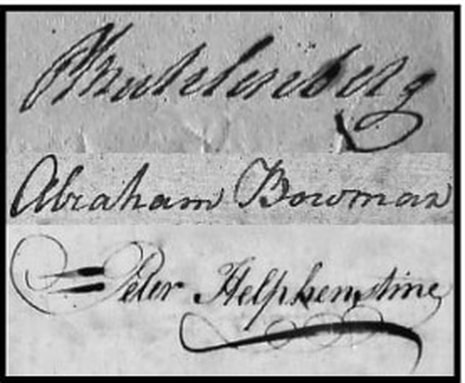 The signatures of Col. Peter Muhlenberg, Lt. Col. Abraham Bowman, and Maj. Peter Helphenstine. (Author)
The signatures of Col. Peter Muhlenberg, Lt. Col. Abraham Bowman, and Maj. Peter Helphenstine. (Author) The concept may have originated with the Rev. Peter Muhlenberg and Jonathan Clark, both delegates from Dunmore County in the Shenandoah Valley. Dunmore (now called Shenandoah County) was the cultural hub of German life in the Valley. It is inconceivable that the resolution could have been drafted without the involvement of at least Muhlenberg and probably of Clark as well. Muhlenberg was the Rector of Beckford Parish, the geography of which was identical to that of Dunmore County. His church was at Woodstock, the county seat. He was, however, more than just the community’s pastor. He was the son of the patriarch or the Lutheran Church in America, whose church was in the village of Trappe near Philadelphia. Clark was the county’s deputy clerk, an important job, under Thomas Marshall (soon to be colonel of the 3rd Virginia Regiment and father of future Chief Justice John Marshall).
The Shenandoah Valley’s Germans had nearly all come the way Muhlenberg had: down the Great Philadelphia Wagon Road to Virginia. The road passed through communities that remain heavily German to this day, such as Lancaster, Pennsylvania. Scotch-Irish immigrants followed the same route, but tended to settle farther south in the Valley, around Staunton and Augusta County.
Lutheran Germans like Muhlenberg were seen by the Virginia gentry as reasonably reliable and trustworthy. Their theology differed little from the Church of England. Muhlenberg had, in fact, gone to London to be ordained before taking his position in Woodstock. (King George III was himself of German descent and his great grandfather, George I, couldn’t speak English when he took the throne.) The Ulster Irish, however, were less trusted. They were theological dissenters and often politically radical. Their Calvinist faith differed in important ways from Anglicanism. They could, however, be counted on to fight
| Muhlenberg and Bowman were both too young to have participated in the French and Indian War as most of Virginia’s other senior officers had. Muhlenberg had spent some time in a British military unit after dropping out of seminary in Germany years before. Bowman had experienced at least one dangerous encounter with Indians as a teenager. It is fairly clear that in choosing them the Convention prioritized their ability to rally and unite the Shenandoah Valley over their fairly meager military experience. Patrick Henry was the only other appointed colonel who had no real military experience. When they received their commissions Muhlenberg was twenty-nine years old and Bowman was twenty-six. The regiment’s major was Peter Helphenstine, a German from Winchester in Frederick County. He was about twice Bowman’s age, in his middle fifties. He had commanded a company in the governor’s division during Lord Dunmore’s War in 1774. He was a respected tradesman and an active Lutheran. |
`
The diversity of the officers reflected the diversity in the rank and file. The 8th Virginia was a microcosm of the Continental Army at large. It was America’s original “melting pot.” Originally divided by race and religion, their shared hardships would soon make them a band of brothers.
The committees were generally dominated by English elites and could be counted on to appoint the right kind of company officers. Only two of ten companies had Irish captains: Fincastle County and the West Augusta district (both on the frontier) selected James Knox and William Croghan. Both were capable and loyal officers.
The choice of field officers, however, was up to the Virginia Convention and it chose three Germans as it had planned. Each was from a different down in the lower (northern) Shenandoah Valley. Muhlenberg was appointed to be the colonel. Abraham Bowman of Strasburg (also in Dunmore County) was appointed to be the lieutenant colonel. Bowman came from a prominent family. His grandfather, Jost Hite, had led the first group of German settlers into the valley from Pennsylvania in 1731.
More from The 8th Virginia Regiment
| Joseph Carman was thirty years old when he enlisted in Captain William Croghan’s company of the 8th Virginia. He joined at Fort Pitt, then claimed by Virginia, early in 1776. He was from Bordentown New Jersey but had gone west for reasons that aren’t known. Croghan was the Irish-born nephew of the controversial Indian agent, trader, and land speculator George Croghan. Abraham Kirkpatrick, the company’s senior lieutenant, had fled Maryland as a youth after killing a man in a fight. When we think of the “wild west” we are far more likely to think of Arizona than Pennsylvania. Yet, the distinction is really one of time, not of geography. No place illustrates this better than Pittsburgh. When the Revolutionary War broke out, and for years after, it was a virtual “Dodge City.” It was full of sketchy characters with fluid loyalties. People there were often just “passing through.” It was already known for violence and would soon be better known for whiskey. Its very existence was, in a sense, illegal under British rule. Fort Pitt was there to guard the frontier, but it was beyond the 1763 Proclamation Line and people were not supposed to settle there. |
The unique story of Croghan’s company in 1776 has been told here already. After another missed rendezvous, they were reassigned to the 1st Virginia Regiment for the year. Carman died too soon to leave a narrative of his specific experiences in the war. None of his five messmates are known to have left a record either. (They were Michael Martin, Moses Martin, George Martin, Daniel Viers, and John McDonald.) It is likely that he crossed the Delaware with Washington on Christmas Day for the attack on Trenton. Though most were too ill after the Trenton adventure he may also have been at the battles of Assunpink Creek and Princeton in early January. United at last with the 8th Virginia in the spring, he was very likely at the Battles of Brandywine and Germantown. Muster rolls confirm he was present and healthy during this time. His Continental service concluded when his two-year enlistment expired near the end of the winter encampment at Valley Forge
Meanwhile, back in Pittsburgh, the Indian peace broke down again and there was plenty to keep the militia (every fighting-age male) busy. An expedition across the Ohio under Col. Edward Hand failed about the time Carman was discharged. If Carman returned directly to Pittsburgh, he may have participated in one or both of the campaigns led by Gen. Lachlan McIntosh and Col. Daniel Brodhead in 1778 and 1779.
Though Pittsburgh itself was on the frontier Colonel Brodhead reported in 1780, “The Emigrations from this new Country to the Settlements on Kentucke & the Falls [of the Ohio—later Louisville] are incredible….” Joseph Carman and his family were among the thousands of pioneers headed to Kentucky, though the date of their move could fall anywhere between 1778 and 1787.
| Seven years later Carman was living at Well’s Station. This was a frontier Kentucky settlement located about half way between Louisville and Frankfort. Well's Station was near the home of storied longhunter, frontiersman, and former 8th Virginia Captain James Knox. The town of Shelbyville would appear close by in 1792. In the fall of 1787, Carman and two companions—Vincent Robbins and Aaron Van Cleve— set out on a buffalo hunt. Buffalo were still common in Kentucky at the time. They headed a few miles north toward Drennon’s Lick, a saltwater spring that attracted large game. The site is known today as Drennon Springs. |
More from The 8th Virginia Regiment
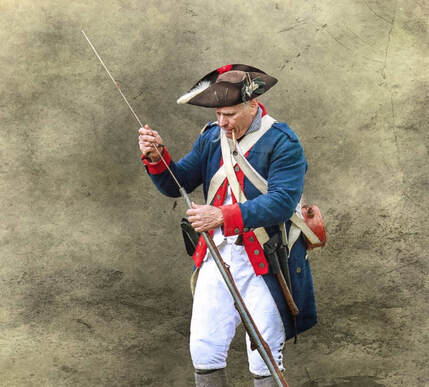 (Image: Randy Steele)
(Image: Randy Steele) Surprisingly, the unique contours of Anderson’s war service resolve a persistent question. The men of the 8th Virginia fought almost everywhere during the Revolution. I have sometimes described them as having served “from New York to Georgia,” but wished I could say “from Canada to Florida.” The regiment didn't range that far, but I have long suspected that some of its men did over the course of the war.
The Florida question remains unsolved. In 1776, Maj. Gen. Charles Lee took the regiment south to attack the Tory haven at St. Augustine. They made it to Sunbury, Georgia before the expedition was called off. The malaria-stick regiment was posted there at Fort Morris, on the Medway River, for some time. Did they ever cross the St. Mary’s River into what was then the colony of East Florida?
The governor of Florida reported in October of 1776 that “depredations were made by the Rebels as far [across the border] as Saint John River,” forcing him to commandeer a boat for defense. The main body of the 8th Virginia was probably gone by then, but had any of them gone scouting across the river before the raid? Quite a few men also remained behind to recover from sickness and some--like William Gillihan and Collin Mitchum--transferred to the 5th South Carolina Regiment. Did any 8th Virginia men participate in the foray to the St. John’s River that summer or fall? Probably. Maybe. We may never know.
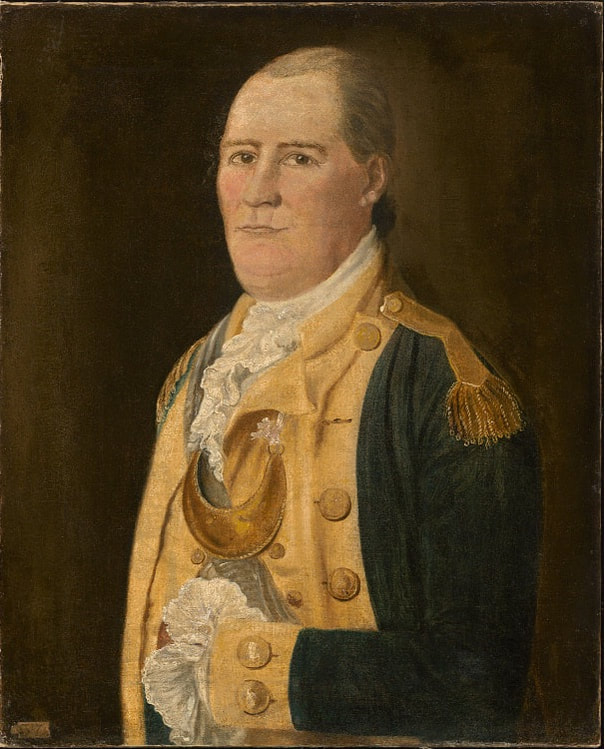 Daniel Anderson enlisted twice under Daniel Morgan, portrayed here in an anonymous portrait from about 1780.
Daniel Anderson enlisted twice under Daniel Morgan, portrayed here in an anonymous portrait from about 1780. In February 1777 he enlisted again under Morgan, who was now the colonel of the 11th Virginia. There is no record of Anderson in the 11th Virginia rolls, however, because he was promoted to sergeant and transferred into Capt. Thomas Berry’s company of the 8th Virginia. Anderson was with the 8th through Germantown, Whitemarsh, Valley Forge, and Monmouth. He was discharged on February 2, 1779. He then received a state commission as a lieutenant in the Western Battalion of Virginia state troops (state regulars—not militia and not Continentals), probably fighting Indians as far west as Indiana under Col. Joseph Crockett. Other 8th Virginia men were on the frontier as well, serving as far west as Illinois. After the war, Anderson settled in Shenandoah County, Virginia and lived the rest of his life there.
So what can we claim for the length and breadth of the regiment’s service? “From Canada to Florida” is still a stretch beyond what we can prove. To the Florida line? Still too far. Until we can prove more, we’ll have to settle for “From Canada nearly to Florida.” Can we also say, “From the Atlantic to the Mississippi?” Not yet, but it’s entirely plausible. Regardless, the range of the 8th Virginia’s men is impressive. Almost all of that movement was covered on foot.
In retirement, Daniel Anderson’s wounds kept him from performing hard labor—even the work of a subsistence farmer. Still, he somehow had to support his wife and three disabled children. “I am by occupation a farmer,” he said in 1820, “but owing to wounds and age I am unable to follow it. I have my wife living with me, aged 57 years; 1 daughter, aged 23 years, a cripple; and two dumb children, both simple, one a girl aged 14 the other a boy aged 27. The reason for his older daughter’s disability was her being “so much afflicted with Cancers that she has not been out of the house for 16 months.” The word "dumb" in those days still meant "mute." "Simple" meant intellectually disabled.
There were no federal pensions yet, but he applied to the Virginia legislature for pension on the basis of his own service-connected disability. He made his case before a judge. His conclusion was recorded by the court in the third person: “The prayer of your petitioner therefore is that your honorable body will pass an Act allowing such pension as in your wisdom you may deem sufficient to enable him to end his few remaining days in praying, as he will ever pray for the success and prosperity of his native state and country to secure the liberties of which in his younger days he voluntarily encountered the perils of war and shed his blood in her service.”
The date of his petition isn’t shown, but it was supported by notes from doctors and a letter from Daniel Morgan in 1796: “The bearer of this Dan’l. Anderson Inlisted a soldier with me in the year 1775 march’d with me to Boston & from thence to Quebec – was with me in the storm of the garison, on the last Day of Dec’r. when Gen;l Montgomery fell. He Rec’d two wounds in the action, one in the Breast & one in his Arm which Doctor senseny & Doctor Balwin certyfies that said wounds has so disabled him as to Rendered unfit for Hard Labour & thinks Him a proper object for a Pension.”
"Doctor Balwin" was Cornelius Baldwin, the former surgeon of the 8th Virginia. Anderson received his state pension and later received federal support as well. He died on November 6, 1840.
UPDATE: Thanks to Carolyn Brown Butler who alerted us to the pension of her ancestor William Smith. Smith, after his time in the 8th, served under George Rogers Clark and (former 8th VA captain) George Slaughter. He was sent by Clark as an express rider to the Iron Banks, six miles below the mouth of the Ohio on the Mississippi. So now we can say that at least one 8th Virginia man served from "the Atlantic to the Mississippi."
More from The 8th Virginia Regiment
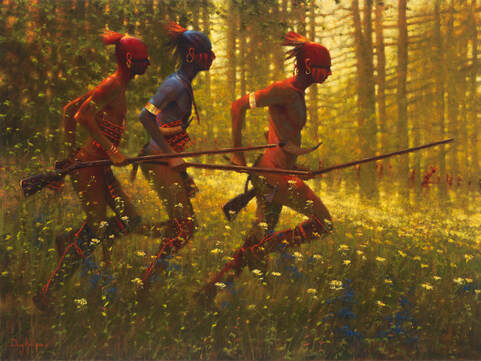 After defeating an army of Shawnee and other Indians at Point Pleasant in 1774, Virginia militia officers pledged their loyalty to the King "whilst his Majesty delights to reign over a brave and free people." (Image: "In Pursuit" by Doug Hall, doughallgallery.com)
After defeating an army of Shawnee and other Indians at Point Pleasant in 1774, Virginia militia officers pledged their loyalty to the King "whilst his Majesty delights to reign over a brave and free people." (Image: "In Pursuit" by Doug Hall, doughallgallery.com) General Lewis’s army consisted chiefly of young volunteers, well trained to the use of arms, as hunting, in those days, was much practised, and preferred to agricultural pursuits by enterprising young men. The produce of the soil was of little value on the west side of the Blue Ridge— the ways bad, and the distance to market too great to make it esteemed. Such pursuits inured them to hard ships and danger. We had more than every fifth man in our army killed or wounded in the battle,— but none were disheartened ; all crossed the river with cheerfulness, bent on destroying the enemy;- and had they not been restrained by the Governor’s orders, I believe they would have exterminated the Shawanese nation.
Stuart said this after noting that the Shawnee were the tribe that had (often with allies) repeatedly defeated Virginian and American armies on the frontier: those of Gen. Edward Braddock (1755) and Major James Grant (1758) in the French and Indian War; colonels John Todd and Stephen Trigg at the Battle of Blue Licks (1782) in Kentucky; and against generals Josiah Harmar (1790) and Arthur St. Clair (1791) in Ohio.
The victory at Point Pleasant was a very big deal. Moreover, though Lord Dunmore (the governor of Virginia) had raised and led the army, the victory had been won without him by the other of two divisions. An army of frontier Virginia marksmen, many of them occasional subsistence hunters, had proven what they could do.
Dunmore headed back to Williamsburg. His officers, cognizant of political events, convened on November 5 at Fort Gower (modern Hockingport, Ohio) on the Ohio River. Among those present were many men who would be important in the Revolution, including William Campbell, George Rogers Clark, Simon Kenton, Andrew Lewis, Daniel Morgan, William Russell, and Adam Stephen. An unidentified officer (possibly Adam Stephen) addressed the group. Having concluded the campaign against the Indians, he said, “it only remains that we should give our country the strongest assurance that we are ready, at all times, to the utmost of our power, to maintain and defend her just rights and privileges.”
He was careful to deny that the army had any revolutionary intentions while also making it clear where their real loyalties lay. “We have lived about three months in the woods without any intelligence from Boston; or from the Delegates at Philadelphia. It is possible, from the groundless reports of designing men, that our countrymen may be jealous of the use such a body would make of arms in their hands at this critical juncture. That we are a respectable body is certain, when it is considered that we can live weeks without bread or salt; that we can sleep in the open air without any covering but that of the canopy of Heaven; and that our men can march and shoot with any in the known world. Blessed with these talents, let us solemnly engage to one another, and our country in particular, that we will use them to no purpose but for the honour and advantage of America in general, and of Virginia in particular. It behooves us then, for the satisfaction of our country, that we should give them our real sentiments, by way of resolves, at this very alarming crisis."
A committee was formed to draft the resolves, which were published soon after. Like other documents of the period immediately before the war, it proclaims loyalty to the King and the governor, but in a way that implied a threat.
Resolved, That we will bear the most faithful allegiance to his Majesty King George the Third, whilst his Majesty delights to reign over a brave and free people; that we will, at the expense of life, and every thing dear and valuable, exert ourselves in support of the honour of his Crown and the dignity of the British Empire. But as the love of Liberty, and attachment to the real interests and just rights of America outweigh every other consideration, we resolve that we will exert every power within us for the defence of American liberty, and for the support of her just rights and privileges; not in any precipitate, riotous, or tumultuous manner, but when regularly called forth by the unanimous voice of our countrymen.
Resolved, That we entertain the greatest respect for his Excellency the Right Honourable Lord Dunmore, who commanded the expedition against the Shawanese; and who, we are confident, underwent the great fatigue of this singular campaign from no other motive than the true interest of this country.
Signed by order and in behalf of the whole Corps,
BENJAMIN ASHBY, Clerk.
Lord Dunmore, whose motives for leading the campaign came to be suspected, fled Williamsburg just a few months later.
Little is remembered about Benjamin Ashby, who signed the document on behalf of the unanimous officers. The ink he put to paper had an impact, however. Just three years later his nephew, George Ashby, a private in the 8th Virginia, would be scrambling about the ground during the Siege of Fort Mifflin collecting and recycling hot cannonballs as his comrades’ ammunition ran low.
More from The 8th Virginia Regiment
Gabriel Neville
is researching the history of the Revolutionary War's 8th Virginia Regiment. Its ten companies formed near the frontier, from the Cumberland Gap to Pittsburgh.
Categories
All
Artifacts & Memorials
Book Reviews
Brandywine & Germantown
Charleston & Sunbury
Disease
Frontier
Generals
Organization
Other Revolutionary War
Race
Religion
Trenton & Princeton
Valley Forge & Monmouth
Veterans
Archives
June 2024
March 2024
January 2024
December 2023
November 2023
October 2023
July 2023
April 2023
February 2023
January 2023
November 2022
August 2022
June 2022
May 2022
April 2022
March 2022
February 2022
October 2021
September 2021
August 2021
March 2021
February 2021
January 2021
December 2020
October 2020
August 2020
July 2020
June 2020
May 2020
April 2020
January 2020
December 2019
November 2019
October 2019
September 2019
August 2019
July 2019
June 2019
April 2019
February 2019
January 2019
November 2018
September 2018
August 2018
June 2018
May 2018
April 2018
March 2018
December 2017
September 2017
August 2017
July 2017
June 2017
April 2017
March 2017
January 2017
November 2016
July 2016
June 2016
January 2016
December 2015
November 2015
October 2015
September 2015
August 2015
February 2015
January 2015
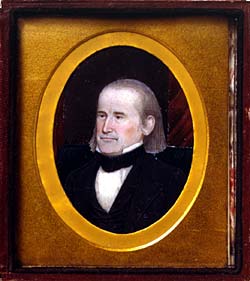
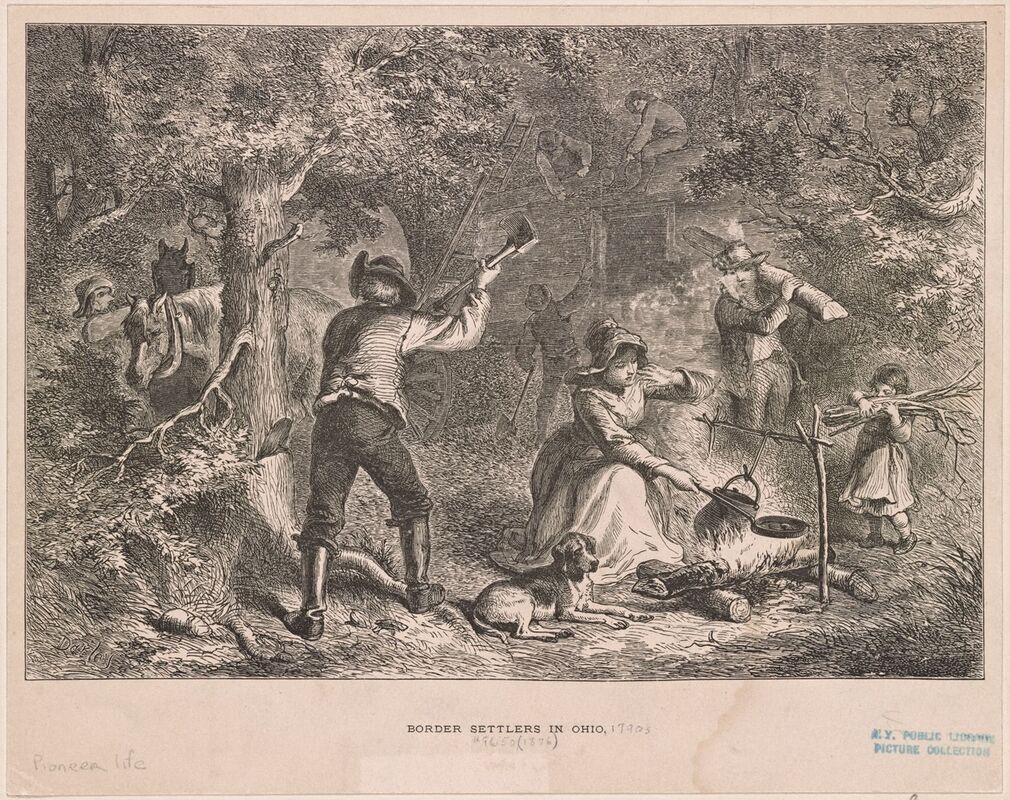
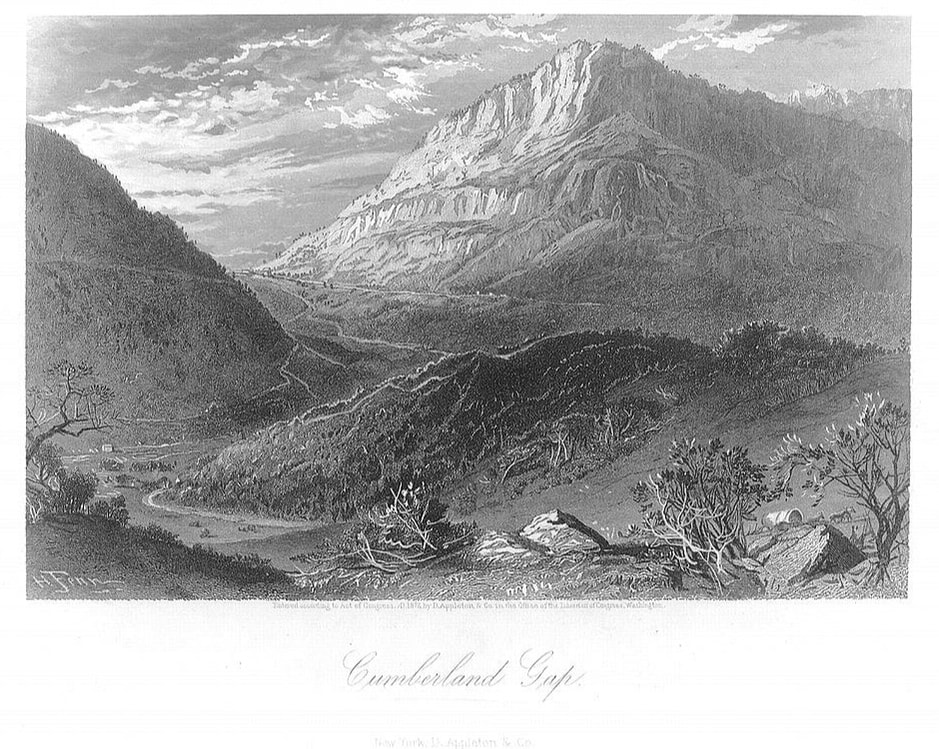
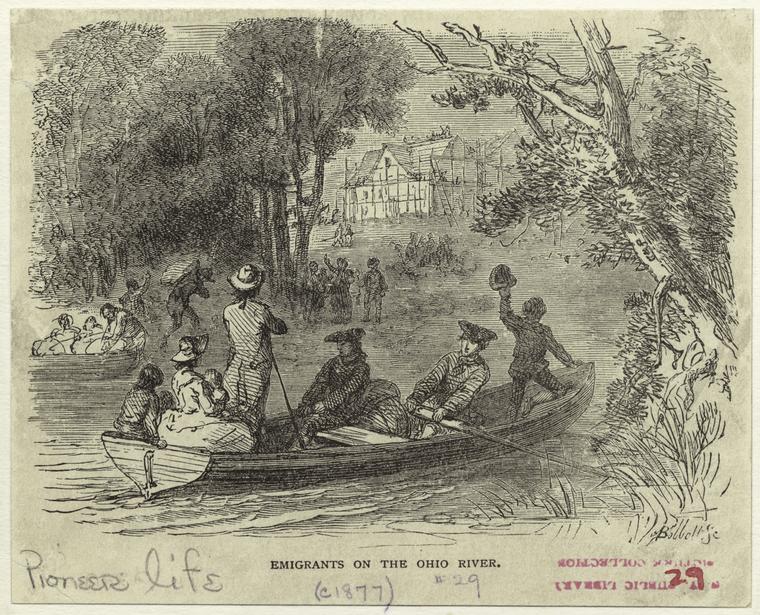
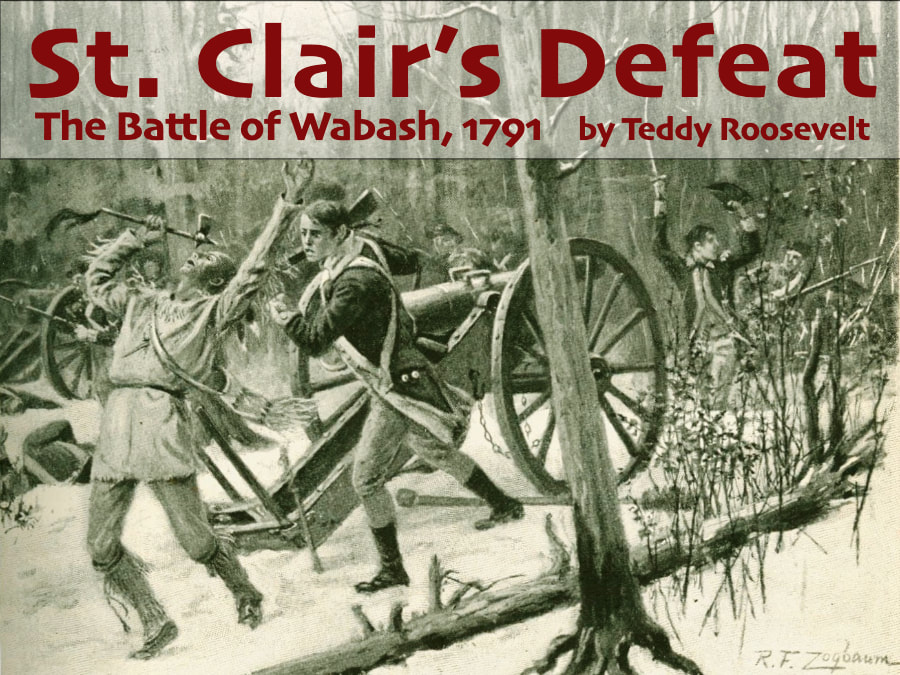
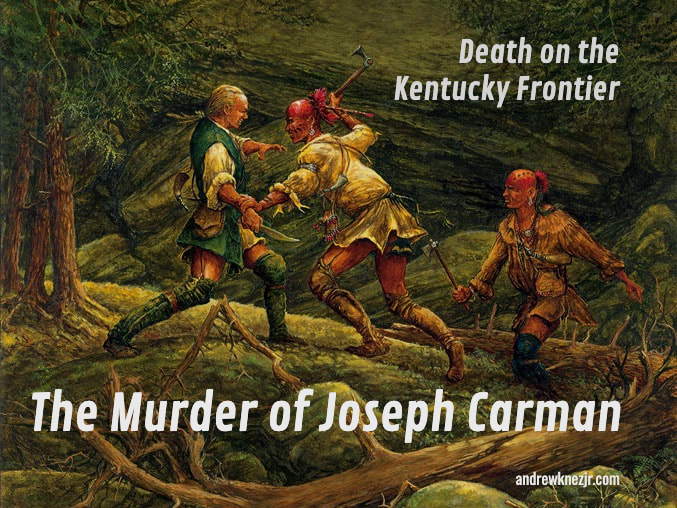
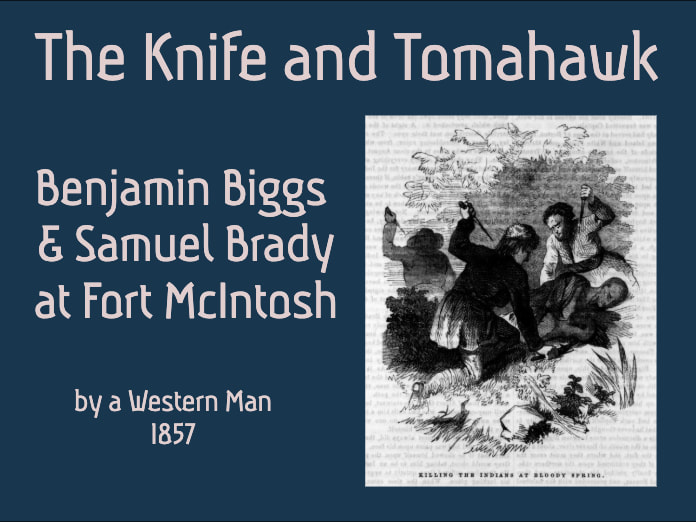
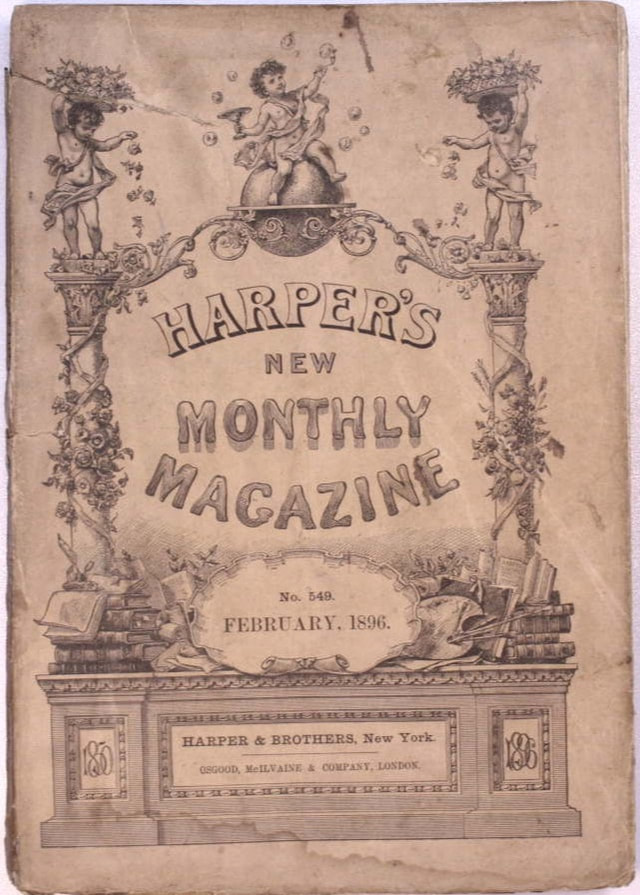
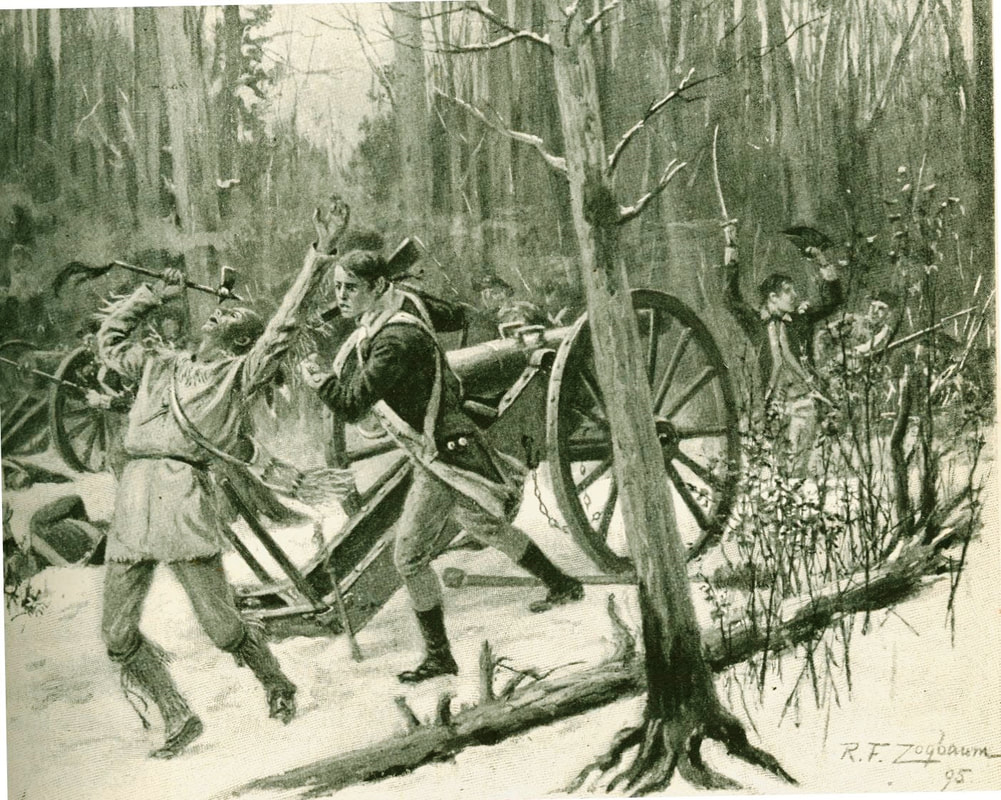
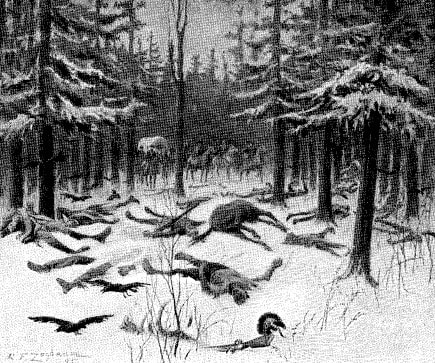
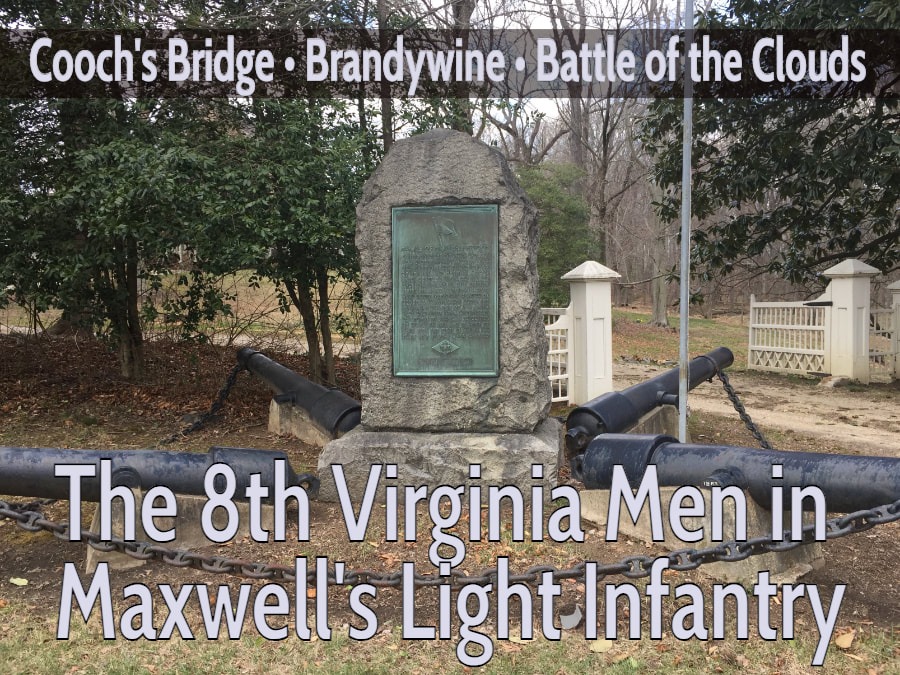
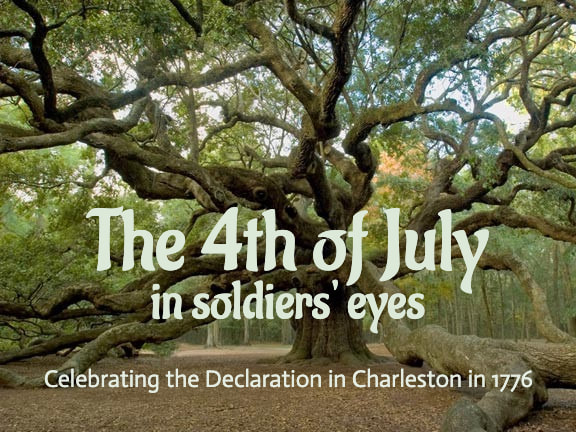
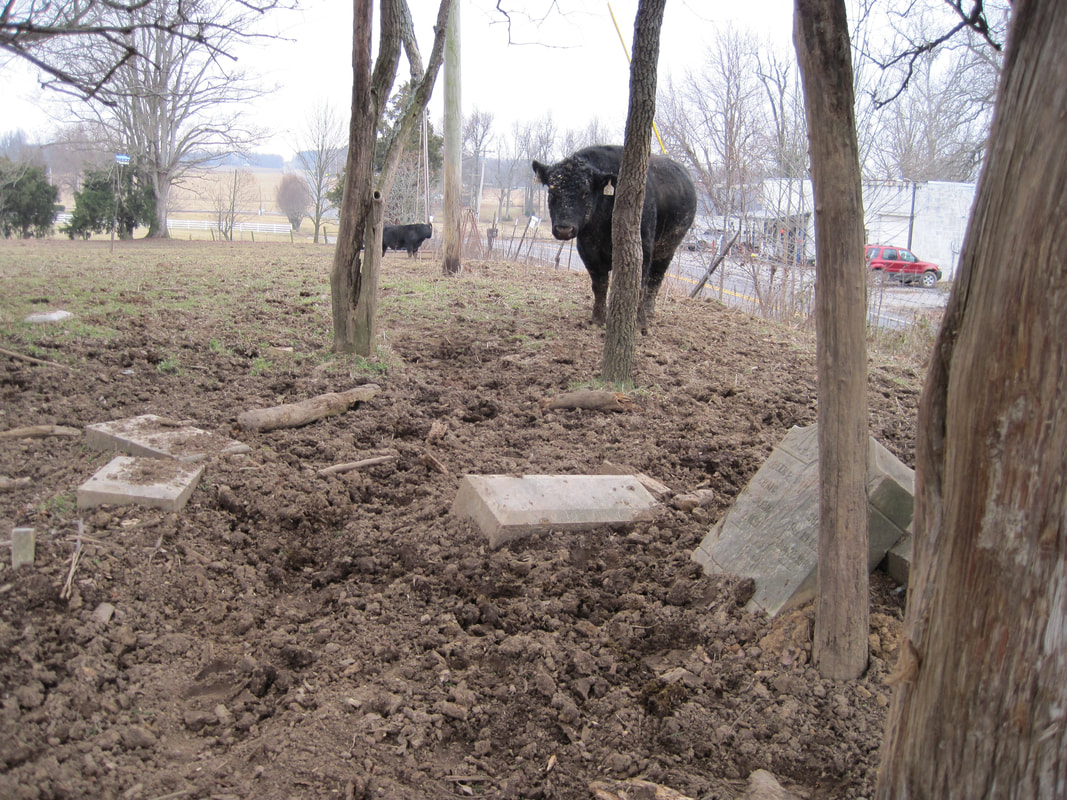
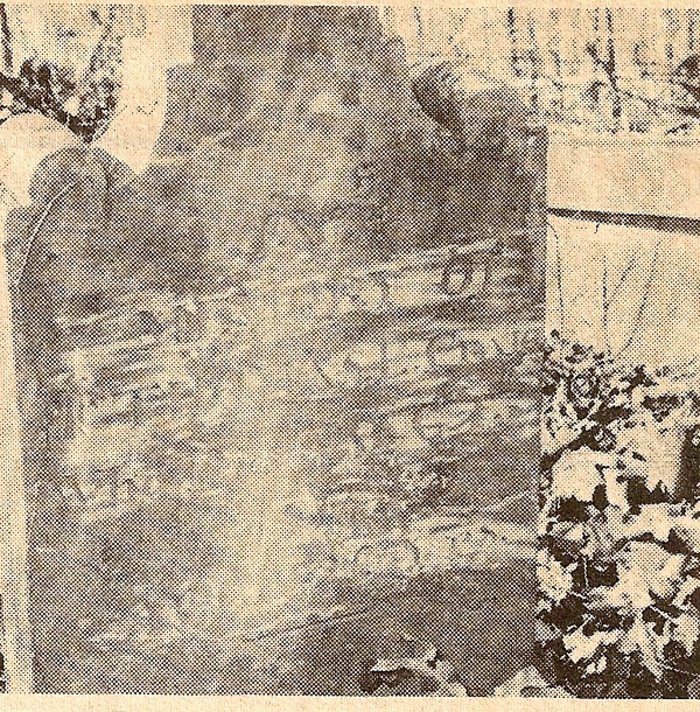
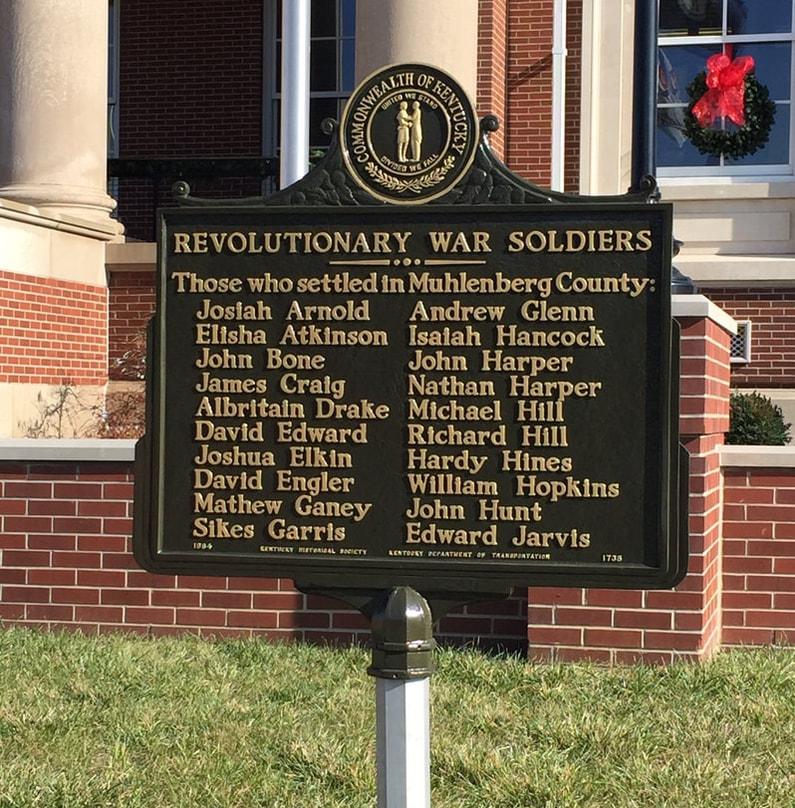
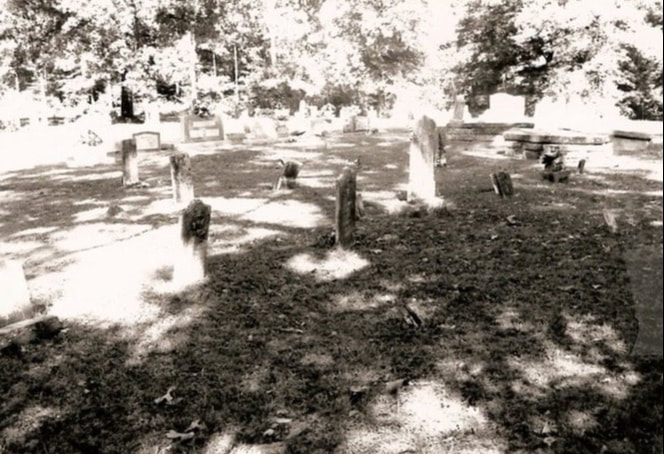
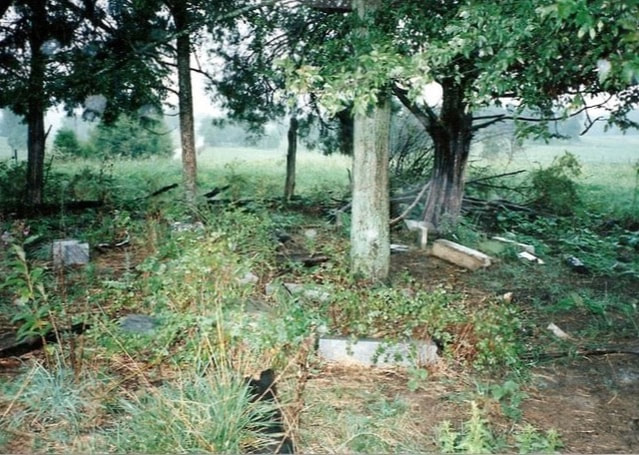
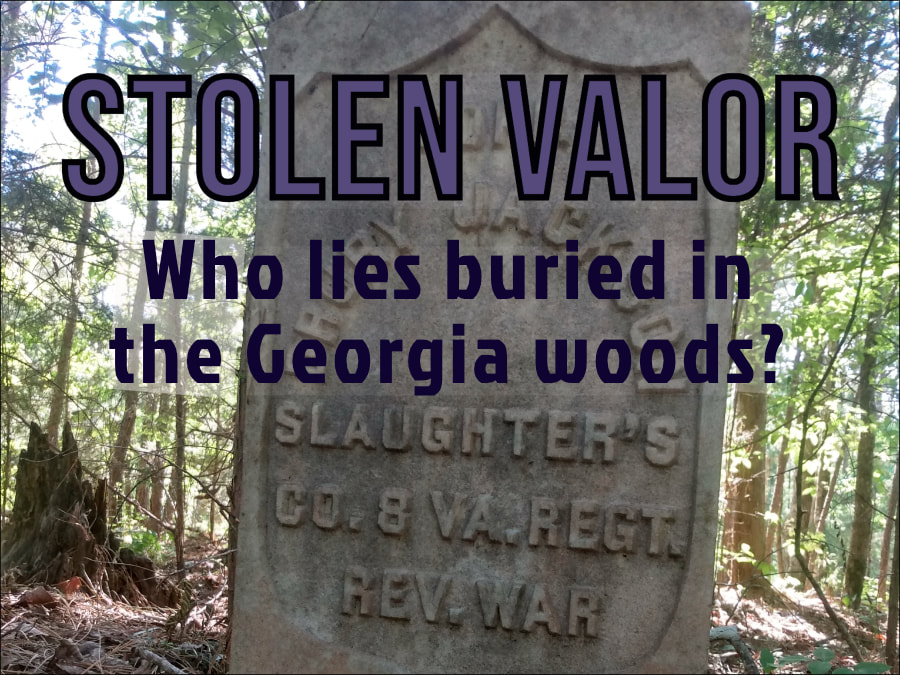
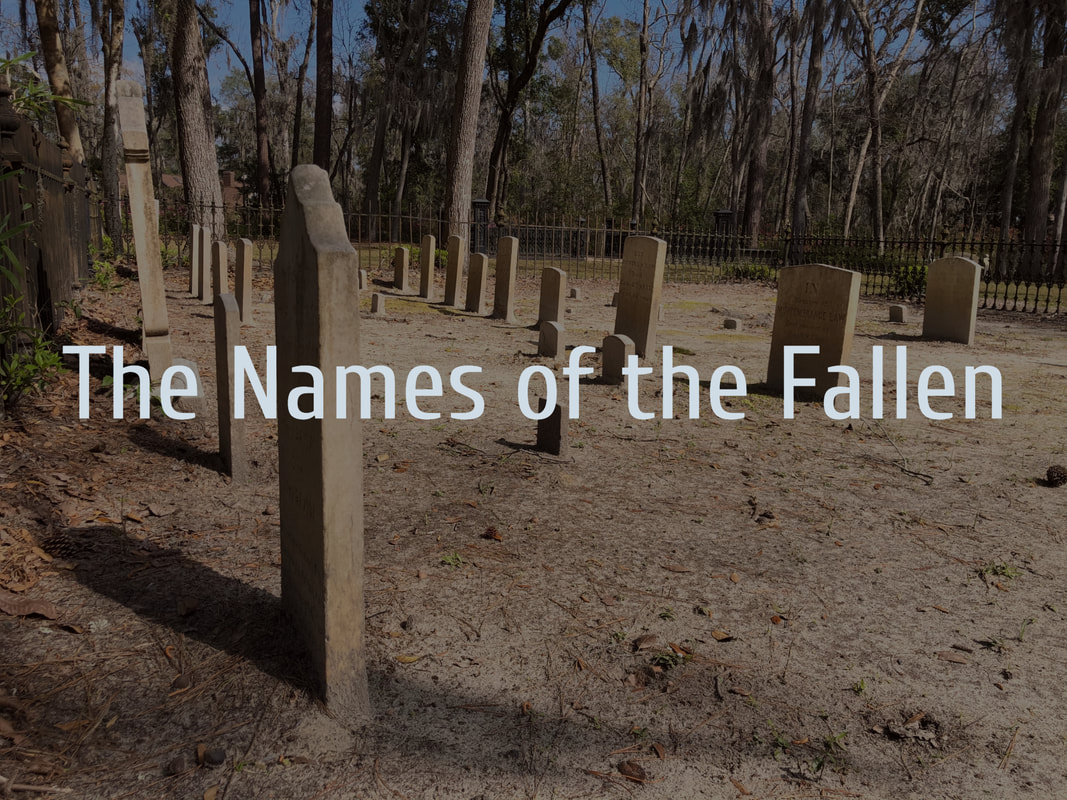
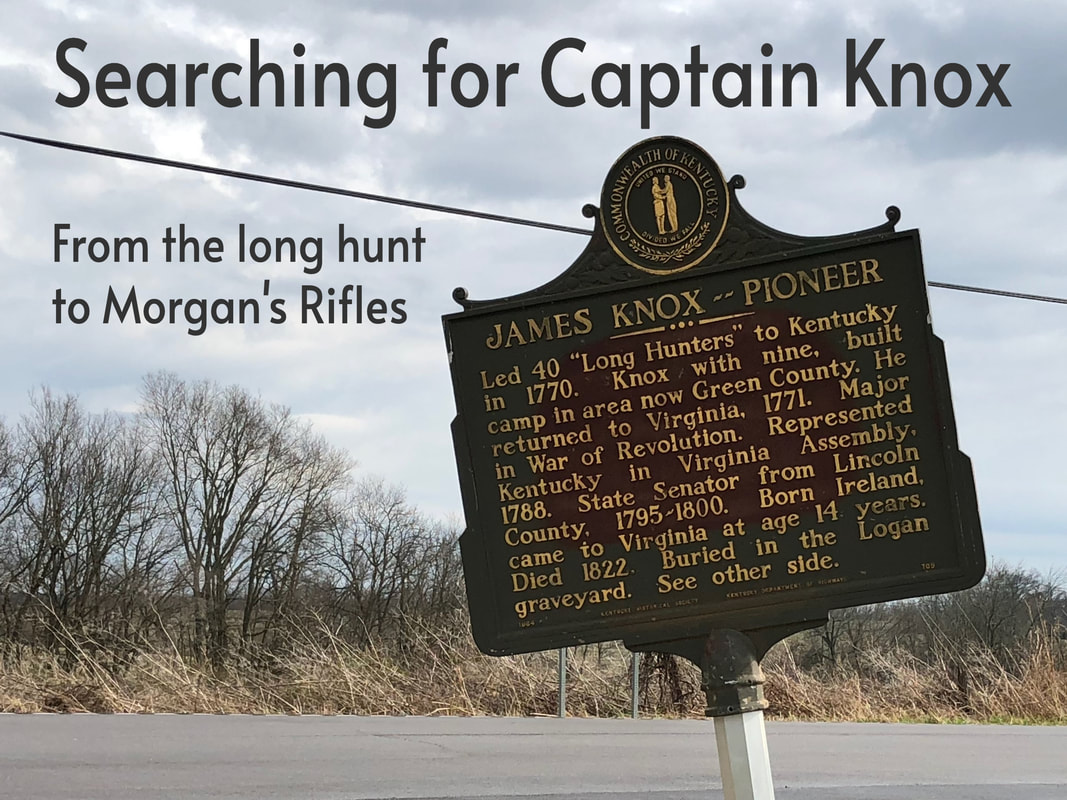

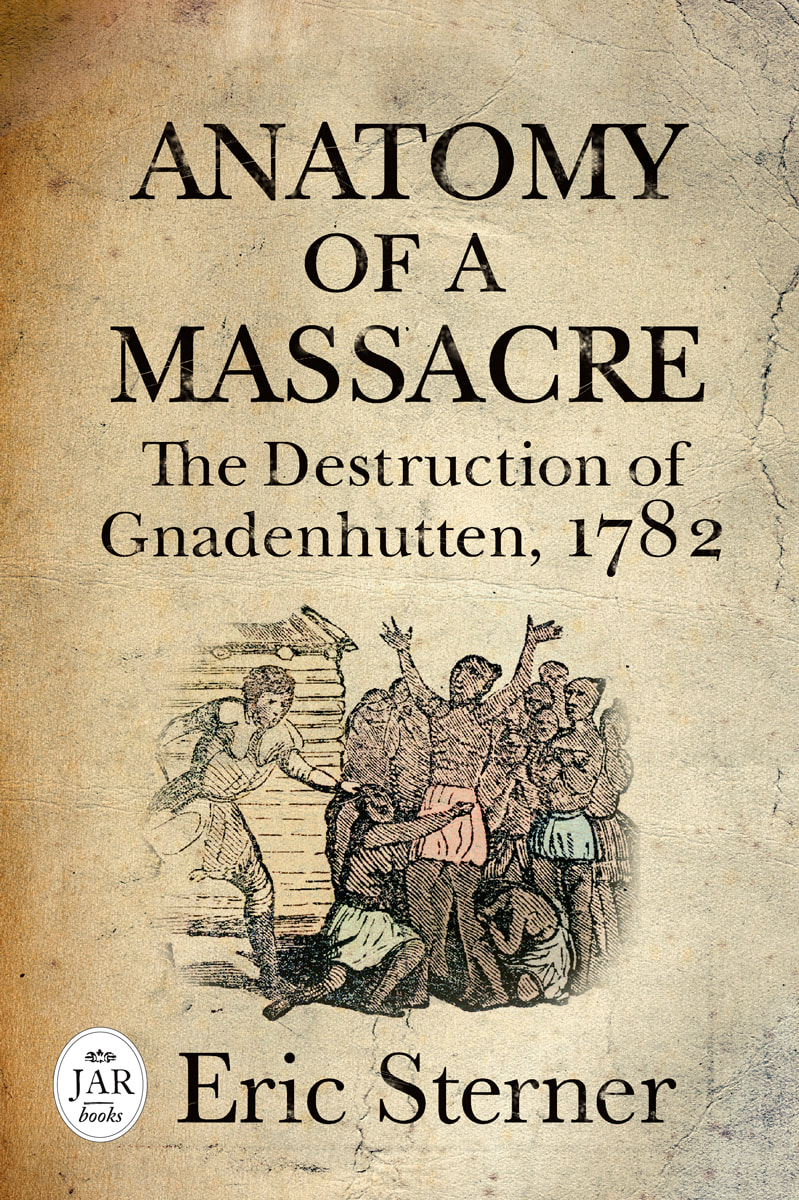
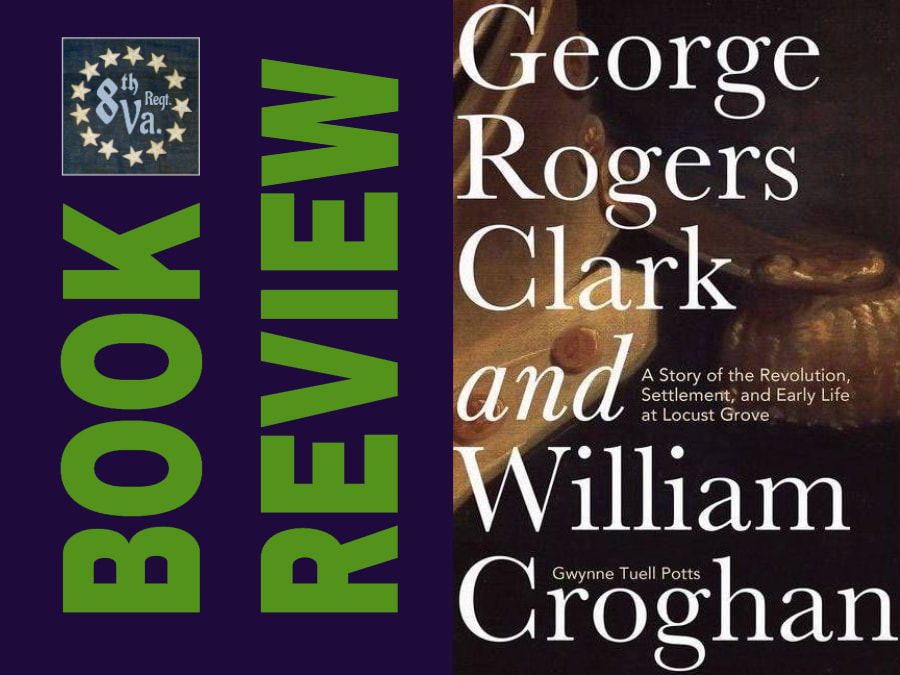
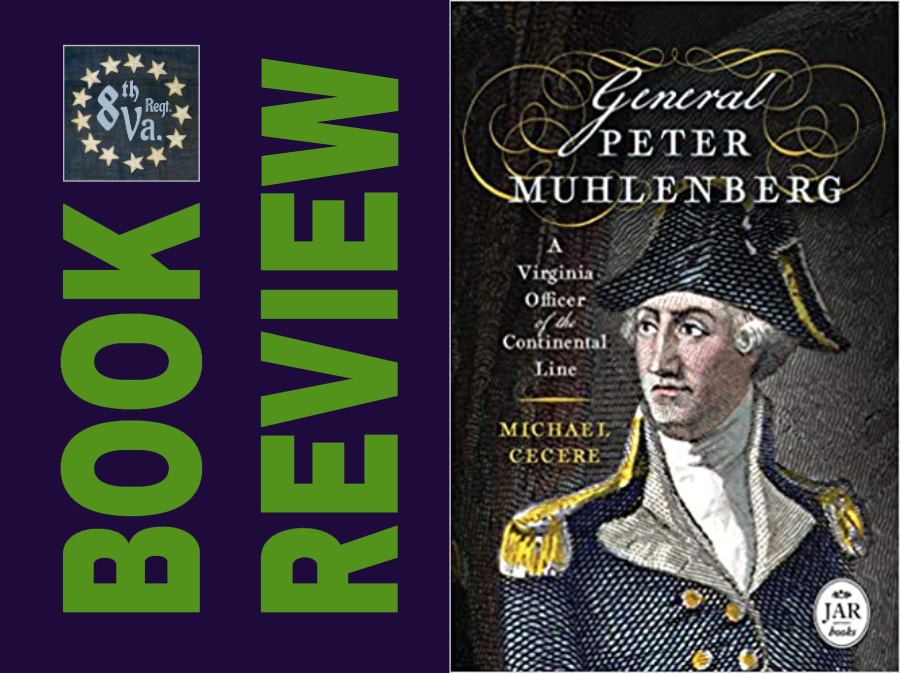
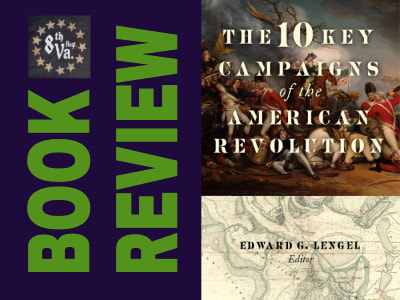
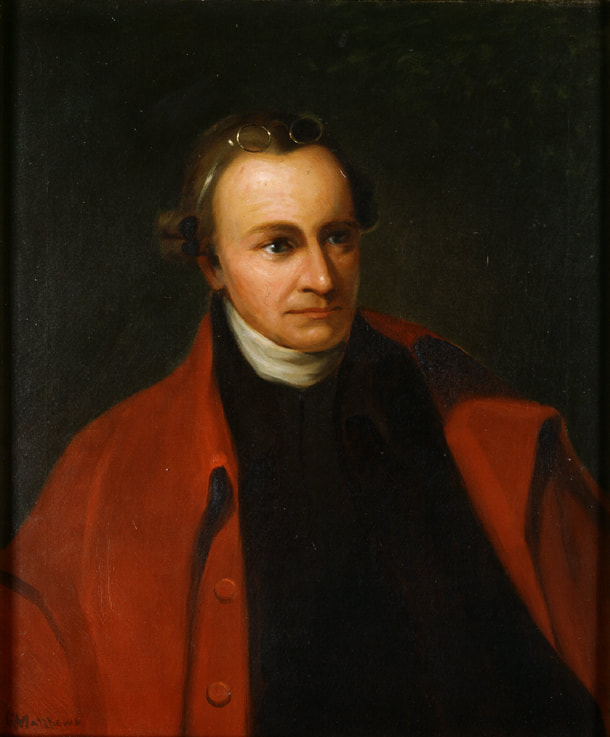
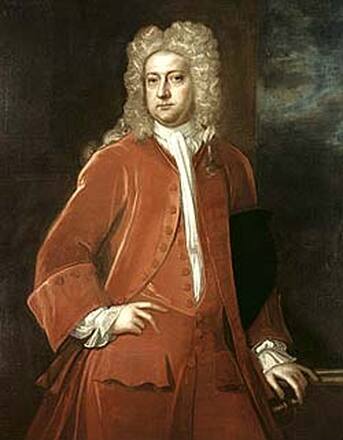
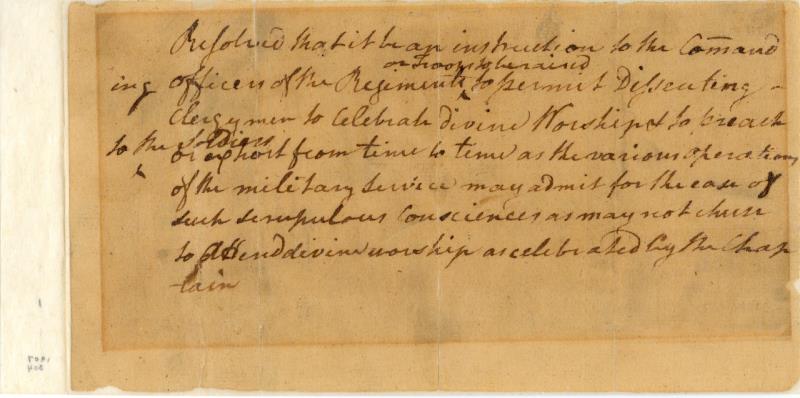
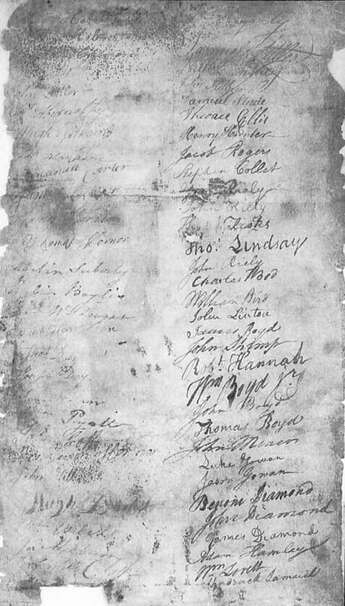
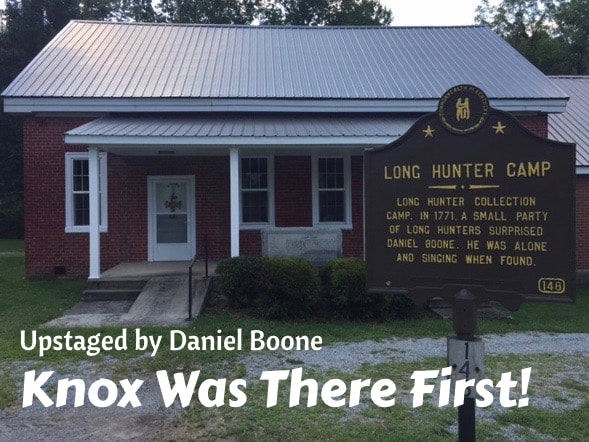
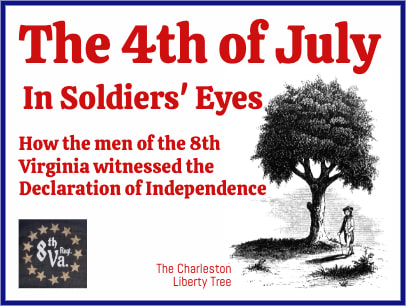
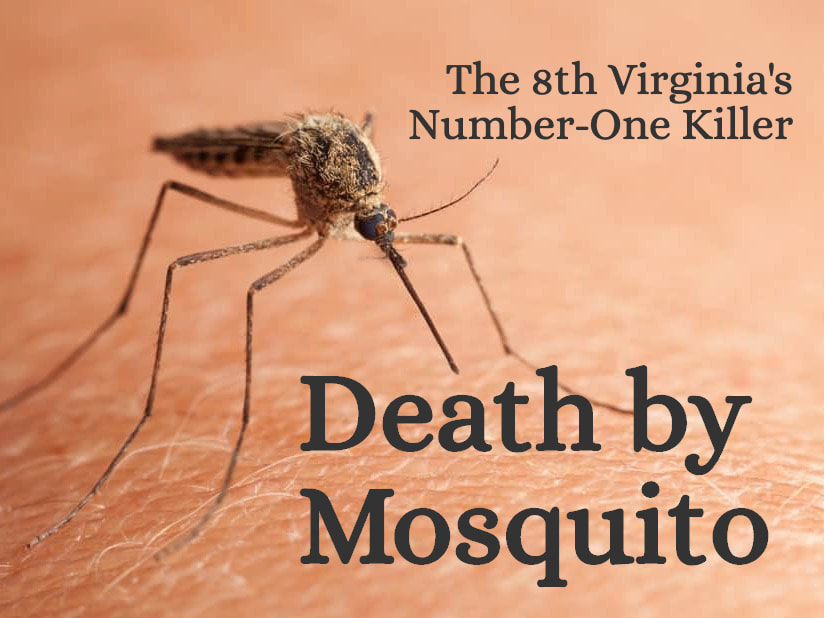
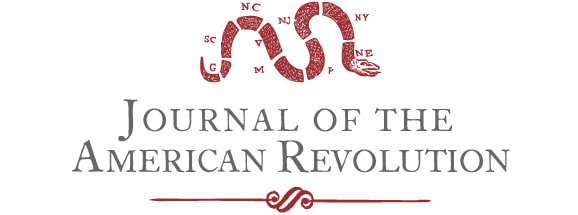
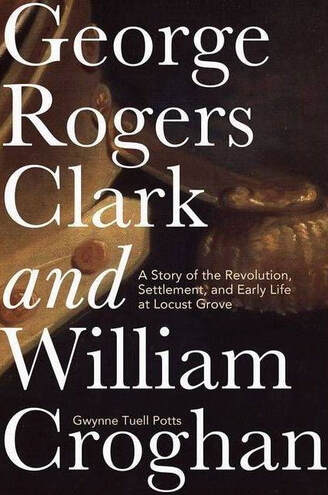
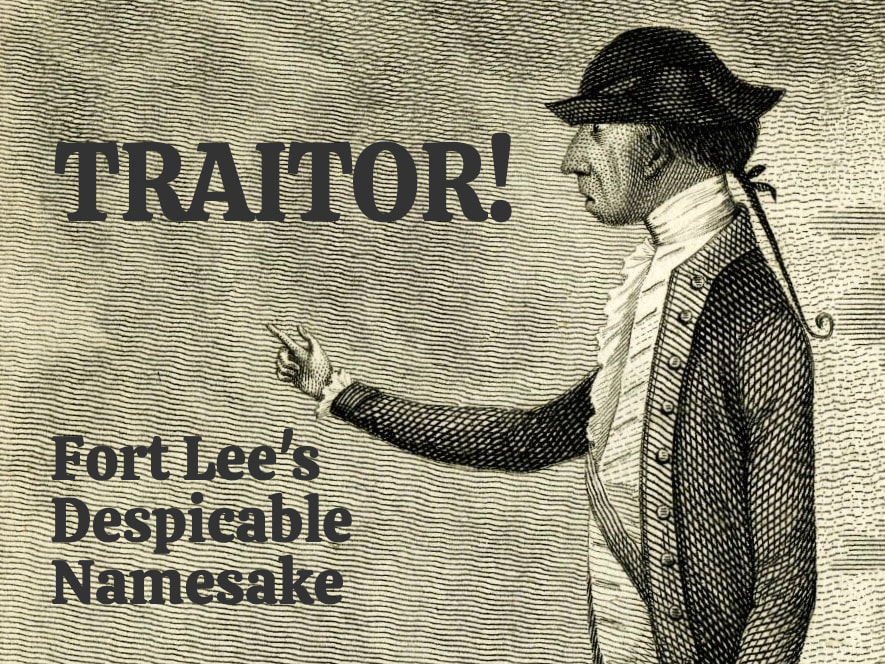
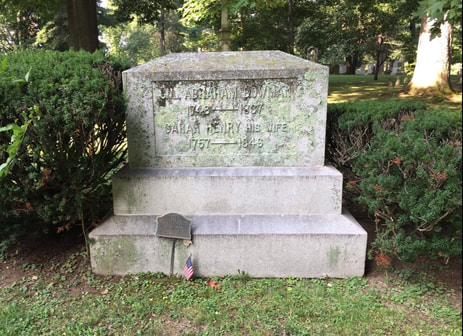
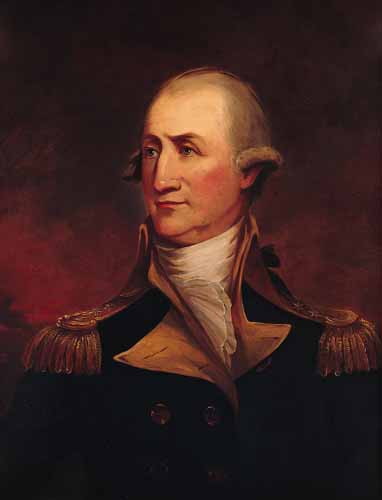
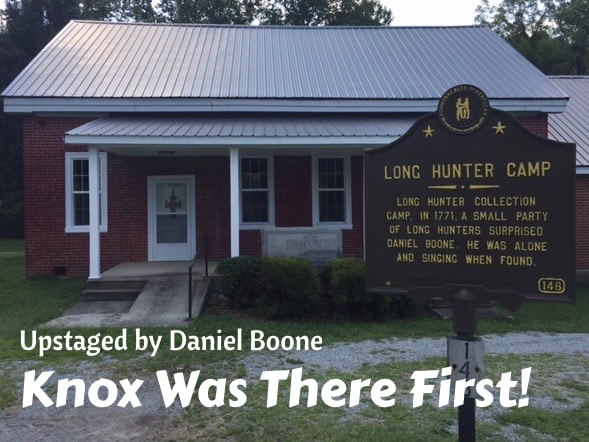
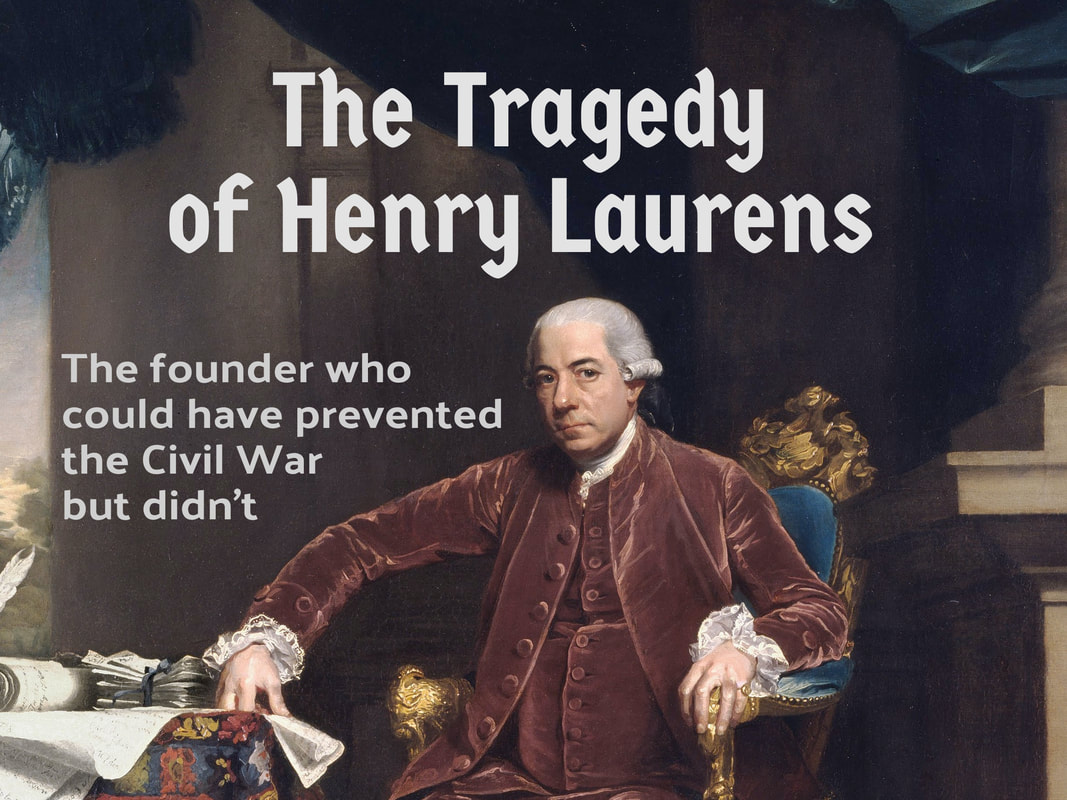

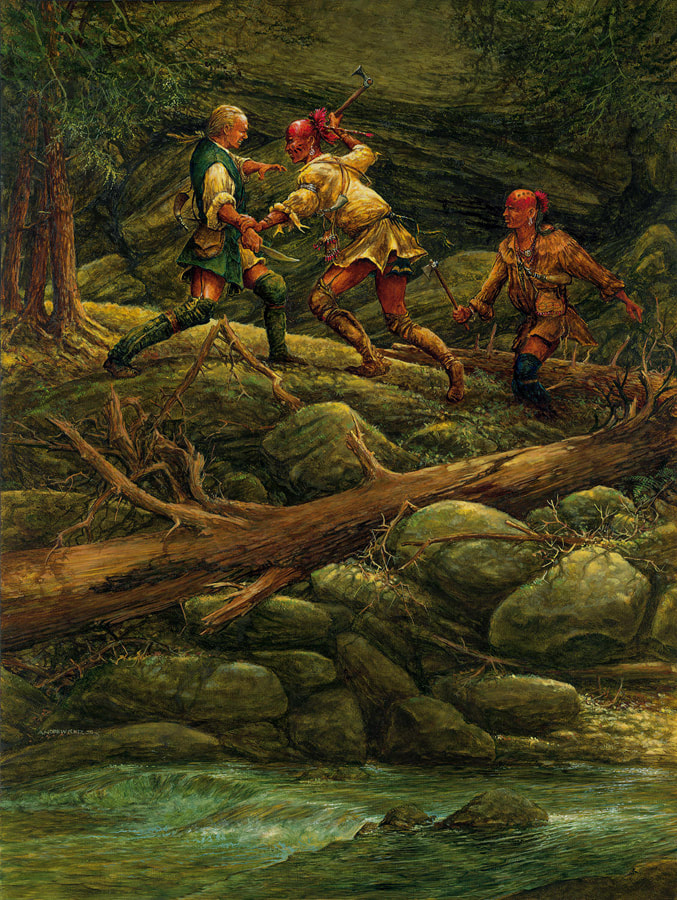
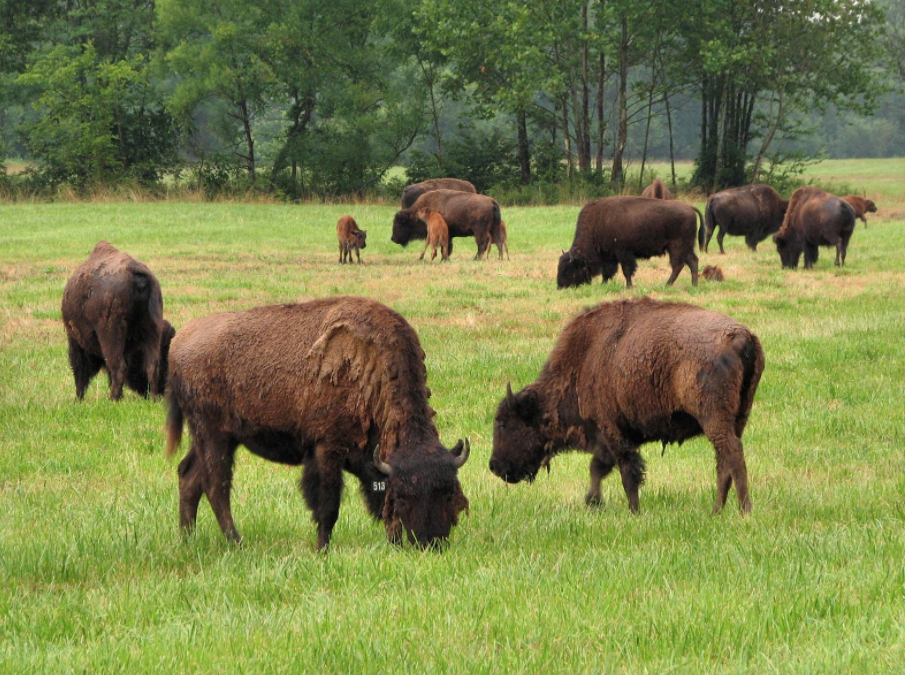

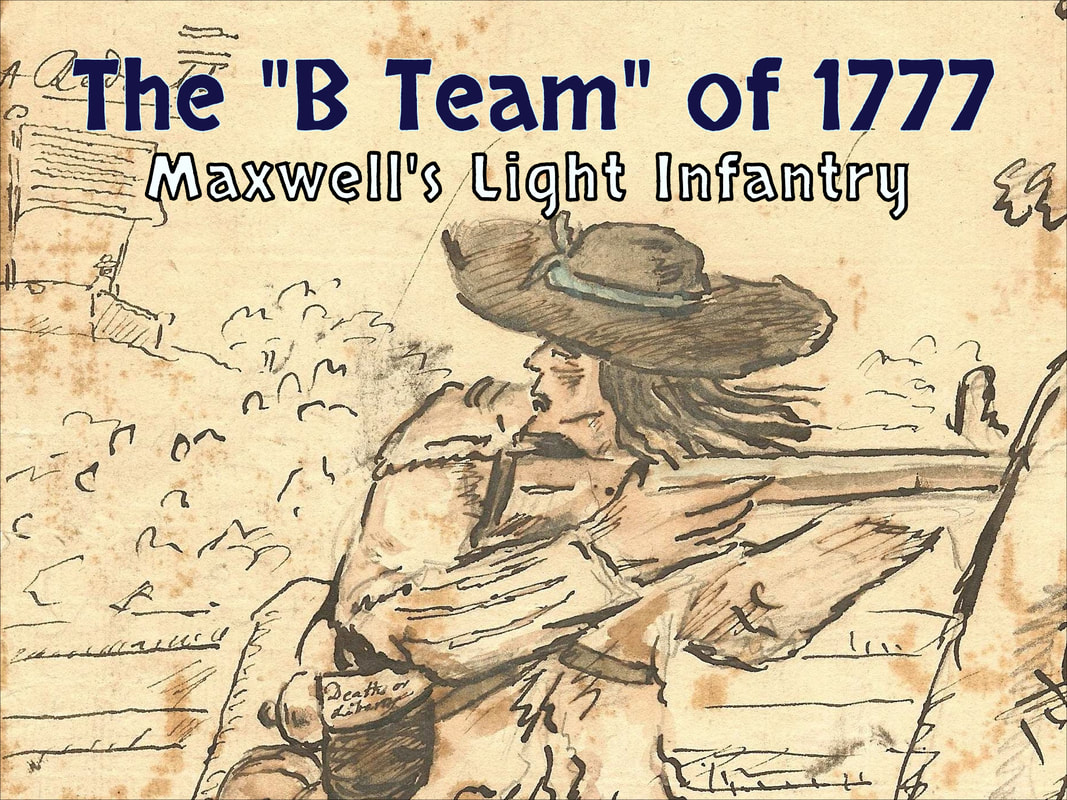
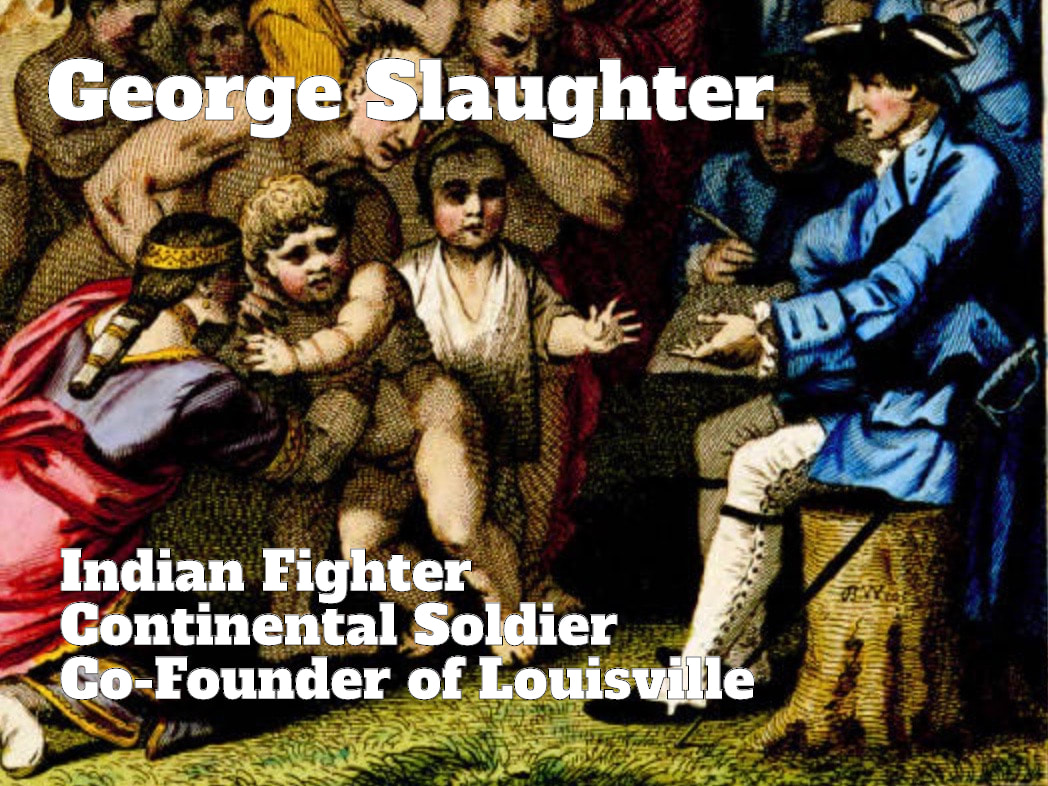
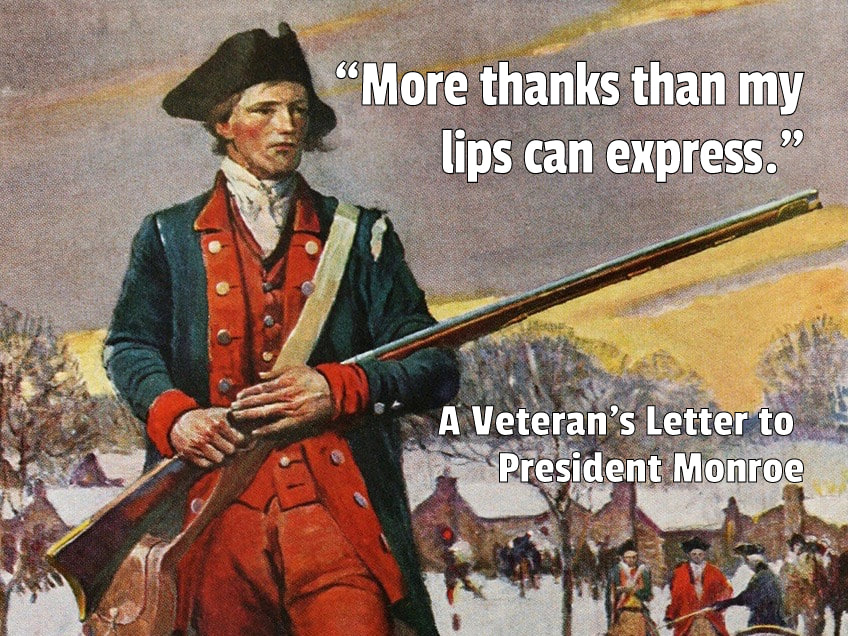
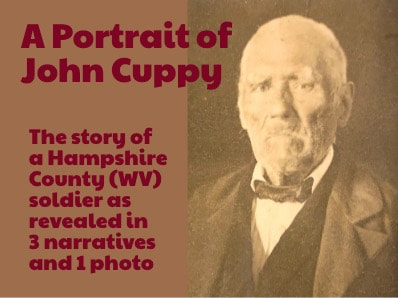
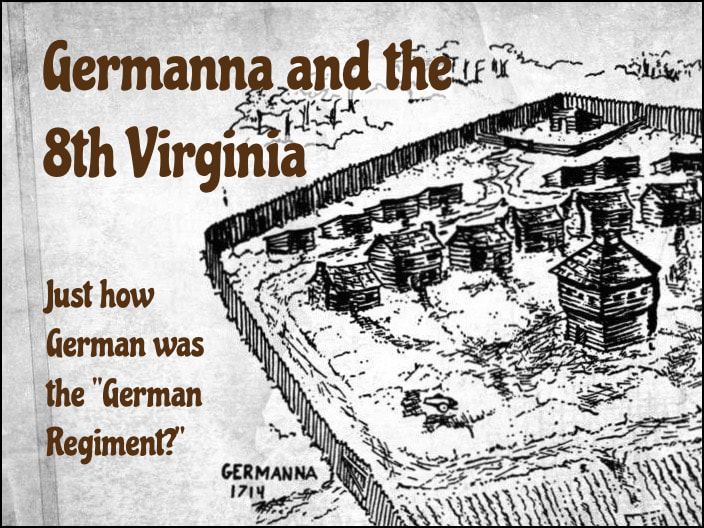
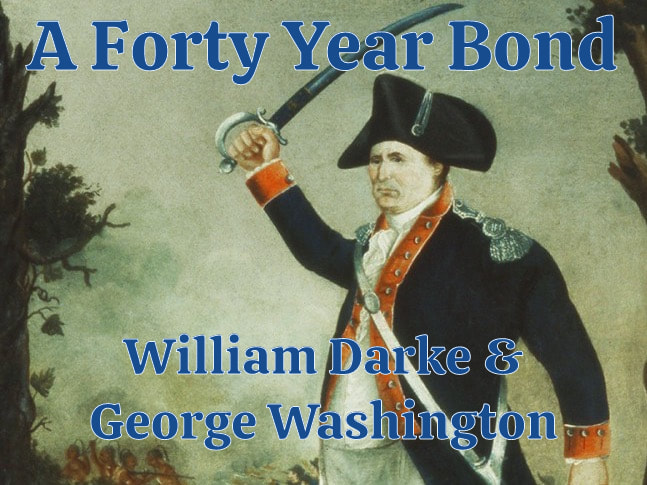
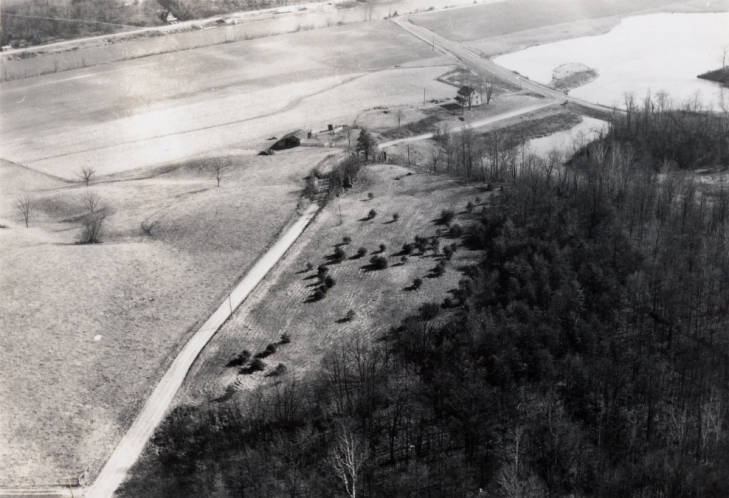
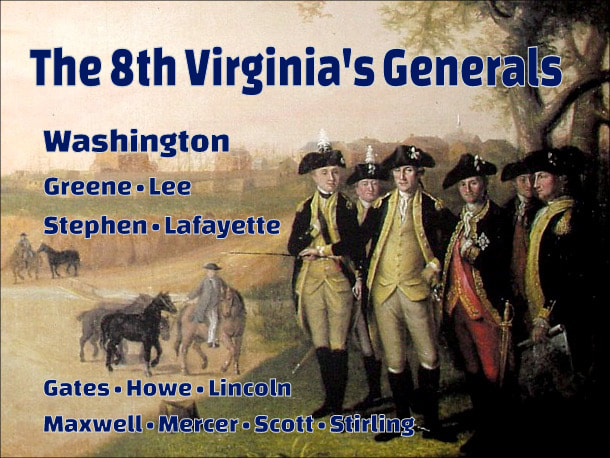
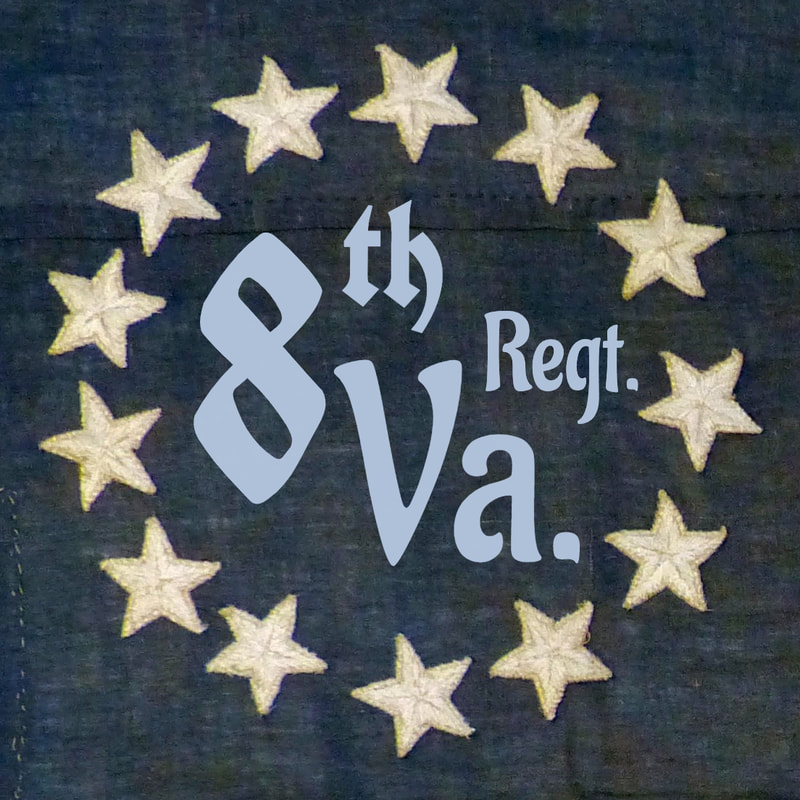
 RSS Feed
RSS Feed